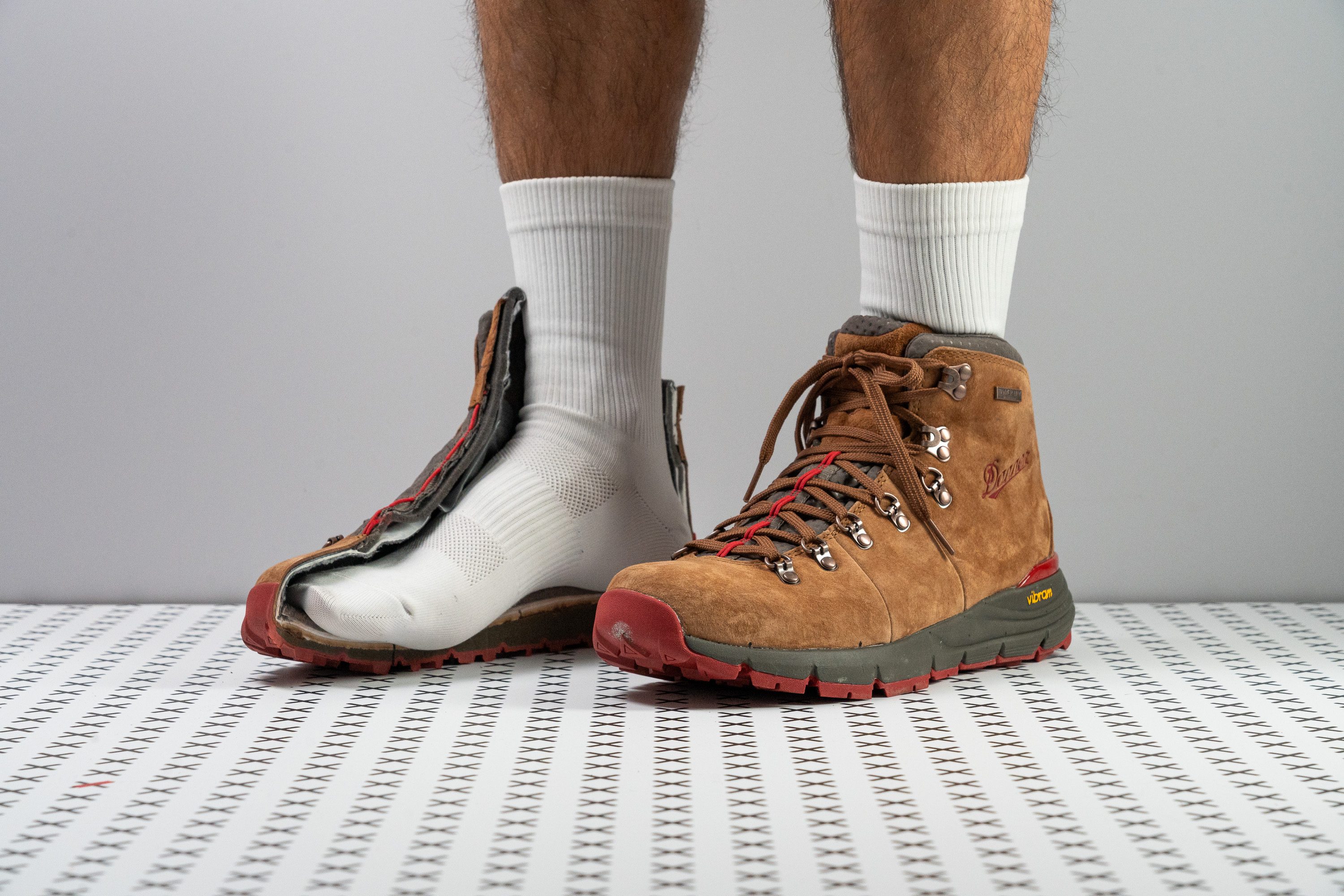Our verdict
- Top pick in best Danner hiking boots
Pros
- Awesome for casual use
- Supportive
- Oustanding grip
- Durable
- Feels light
- Great out of the box
- Waterproof
- Awesome for casual use
Cons
- Debris gets into the boot
- Not for technical hiking
Audience verdict
- Top 13% in hiking boots
- Top 12% in waterproof hiking boots
- Top 18% most popular hiking boots
Comparison
The most similar hiking boots compared
+ + Add a shoe | |||||
|---|---|---|---|---|---|
| Audience score | 90 Great! | 89 Great! | 77 Decent! | 88 Great! | |
| Price | £200 | £200 | £230 | £170 | |
| Trail terrain | LightModerate | LightModerate | ModerateTechnical | Moderate | |
| Shock absorption | Moderate | Low | - | - | |
| Energy return | Moderate | Low | - | - | |
| Weight lab Weight brand | 18.7 oz / 529g 19.5 oz / 553g | 17 oz / 482g 17 oz / 482g | 20.6 oz / 583g 20.6 oz / 585g | 21.7 oz / 615g 20.9 oz / 592g | |
| Lightweight | ✗ | ✓ | ✗ | ✗ | |
| Breathability | Moderate | Warm | Warm | Warm | |
| Use | Day HikingUrban hikingSnow | Day HikingLight HikingUrban hiking | BackpackingDay HikingSnow | BackpackingDay Hiking | |
| Orthotic friendly | ✓ | ✓ | ✓ | ✓ | |
| Drop lab | 13.8 mm | 13.5 mm | 14.0 mm | 16.7 mm | |
| Size | True to size | True to size | Slightly small | True to size | |
| Midsole softness | Balanced | Firm | Balanced | Soft | |
| Difference in midsole softness in cold | Normal | Small | Small | Normal | |
| Heel counter stiffness | Moderate | Stiff | Moderate | Moderate | |
| Stiffness | Moderate | Moderate | Moderate | Stiff | |
| Outsole hardness | Average | Very hard | Hard | Very hard | |
| Waterproofing | Waterproof | Waterproof | Waterproof | Waterproof | |
| Material | Suede | Suede | Suede | Leather | |
| Season | - | Winter | Winter | Winter | |
| Toebox durability | Good | Decent | Good | Good | |
| Heel padding durability | Bad | Decent | Decent | Decent | |
| Outsole durability | Decent | Decent | Good | Bad | |
| Width / fit | Medium | Medium | Medium | Wide | |
| Toebox width | Medium | Medium | Narrow | Wide | |
| Lug depth | 4.0 mm | 3.7 mm | 4.0 mm | 3.6 mm | |
| Heel stack lab | 36.8 mm | 32.7 mm | 34.2 mm | 41.0 mm | |
| Forefoot | 23.0 mm | 19.2 mm | 20.2 mm | 24.3 mm | |
| Widths available | NormalWideX-Wide | Normal | Normal | NormalWide | |
| Technology | OrtholiteVibram | Ortholite | Gore-TexVibram | - | |
| Cut | Mid cut | Mid cut | Mid cut | Mid cut | |
| Removable insole | ✓ | ✓ | ✓ | ✓ | |
| Ranking | #5 Top 13% | #8 Top 20% | #39 Bottom 4% | #16 Top 40% | |
| Popularity | #7 Top 18% | #29 Bottom 29% | #41 Bottom 1% | #31 Bottom 24% |
Who should buy
We recommend the Danner Mountain 600 as a great choice for:
- Weekend hikers in the market for a comfortable and supportive boot that can tackle quick treks and full-day hikes alike.
- Those living in places with big temperature fluctuations as the seasons change and require a boot that performs consistently year-round.
- Hikers in the market for a waterproof shoe with some level of breathability for river crossings and rainy days.
- Fashion-minded folks looking for a stylish boot that's form as well as function and can be used for casual days about town.
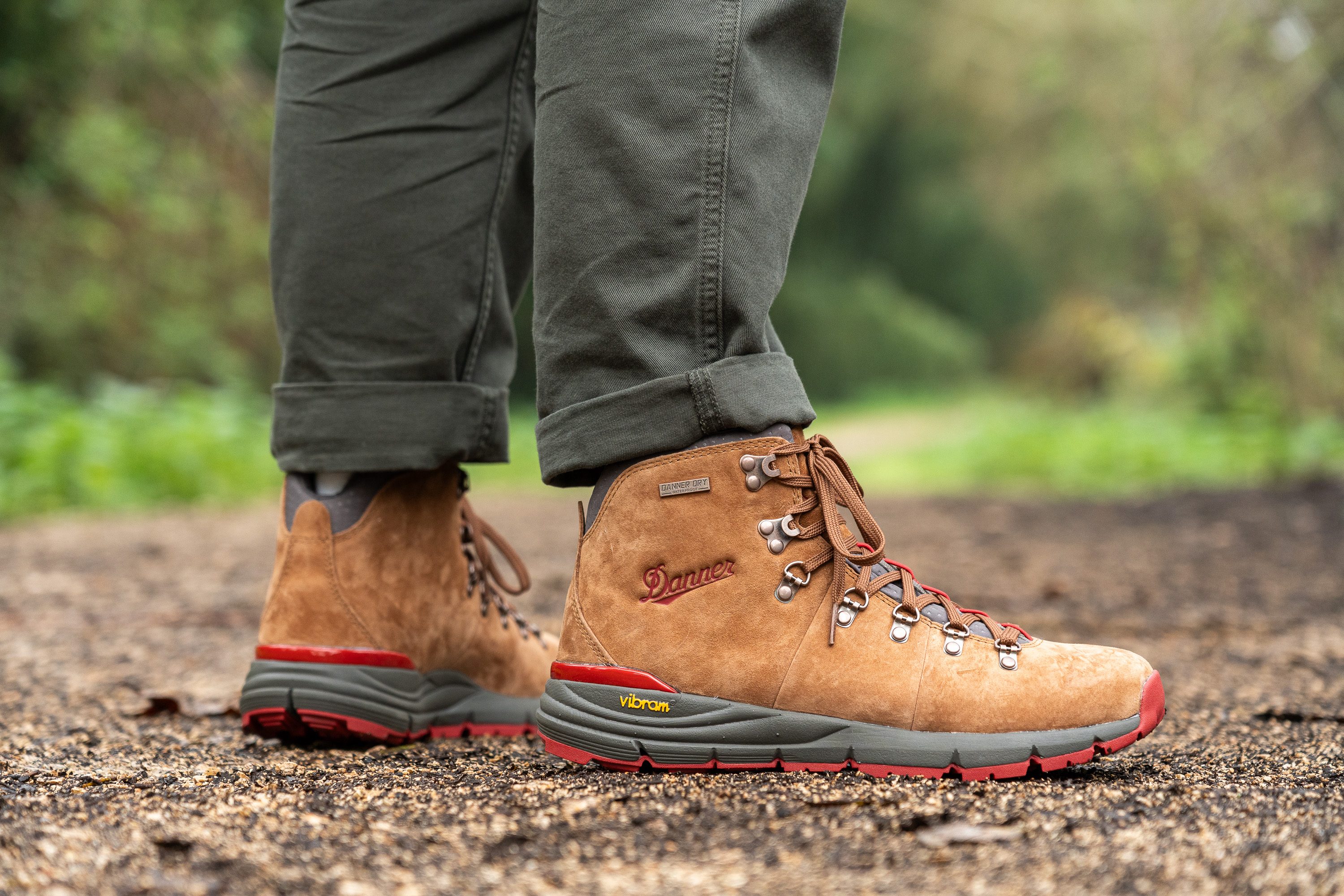
Who should NOT buy
While the Mountain 600's outsole provided us with great traction over mild trails, we don't recommend it to those who frequent more technical terrains. The Salomon Quest 4 GTX is an alternative that can kick ass and take names no matter how challenging the trail.
For those who prefer a boot with a firmer midsole that's better suited for longer backpacking adventures, we recommend checking out the Asolo Fugitive GTX as a similarly priced alternative.
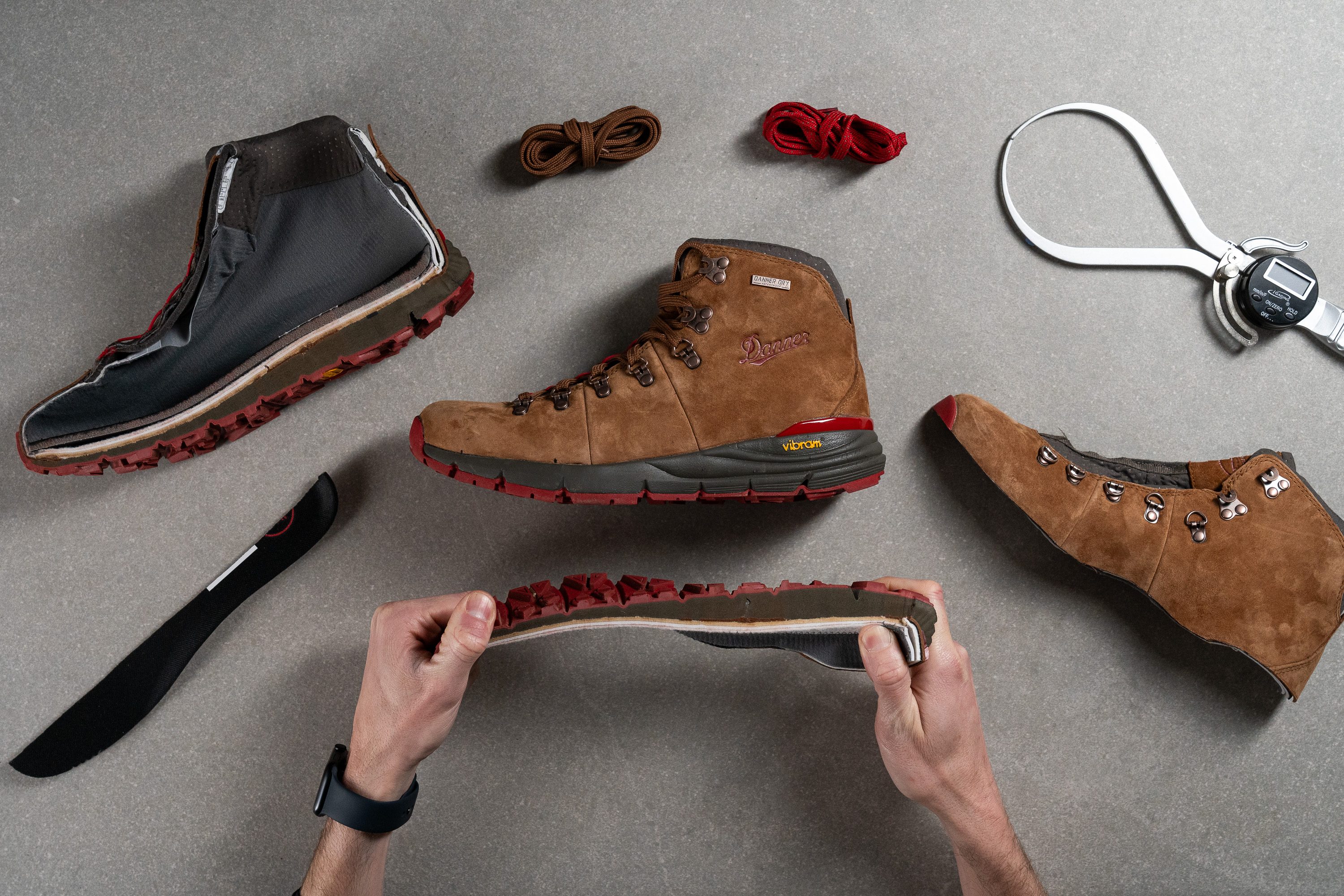
The way the heel counter flares out slightly at the rear of the shoe means that some little bits of debris did manage to creep their way into the boot. That's one issue we didn't have to contend with at all when testing the Adidas Terrex Free Hiker 2 with its snug, sock-like fit.
Cushioning
Shock absorption
The Danner Mountain 600 balances impact protection and ground feel with a moderate shock absorption reading of 99 SA.
It feels sufficiently protective and supportive for light day hikes but lacks the impact protection needed for long-distance and multi-day endeavours.
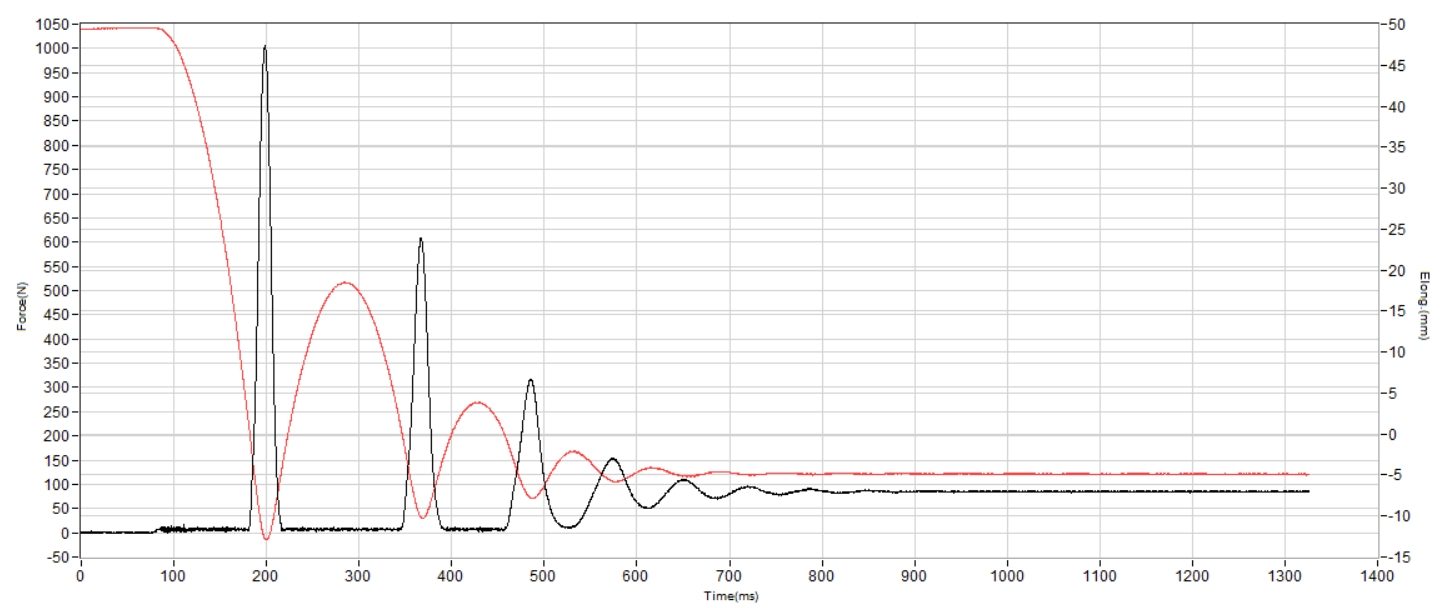
| Mountain 600 | 99 SA |
| Average | 93 SA |
Energy return
With a moderate energy return of 46%, the ride of this Danner boot is not particularly lively or responsive. But it offers a planted and stable stance in return.
| Mountain 600 | 46.0% |
| Average | 50.5% |
Heel stack
The Mountain 600's stack is right on par with our current lab average, measuring 36.8 mm thick at the heel according to our calliper.
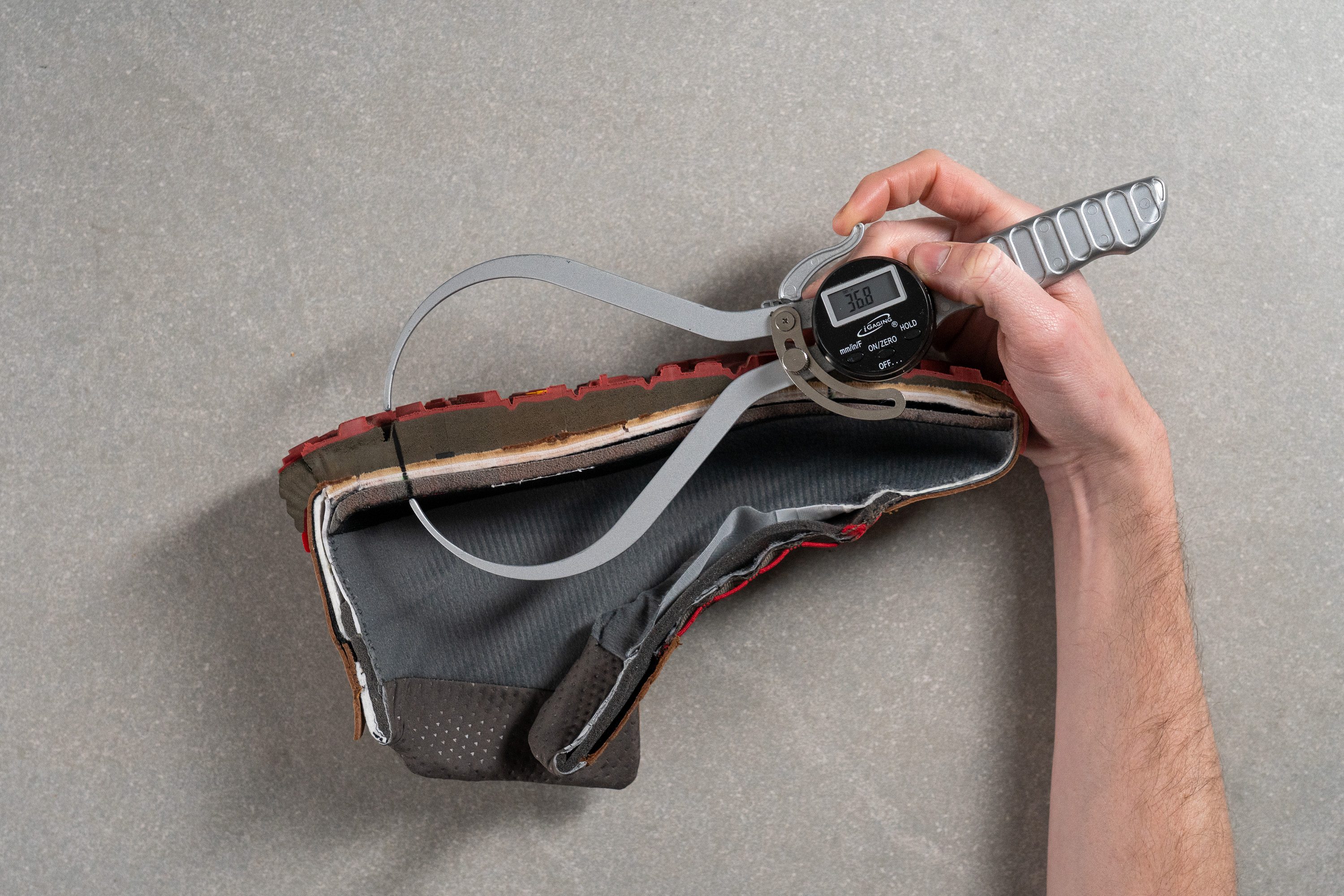
This provides us with ample foam underfoot that does a great job of dampening our landings and protecting us from harsh obstacles below.
| Mountain 600 | 36.8 mm |
| Average | 36.3 mm |
Forefoot stack
The Mountain 600's stack is also within the average range for hiking boots at 23 mm thick according to our calliper measurements.
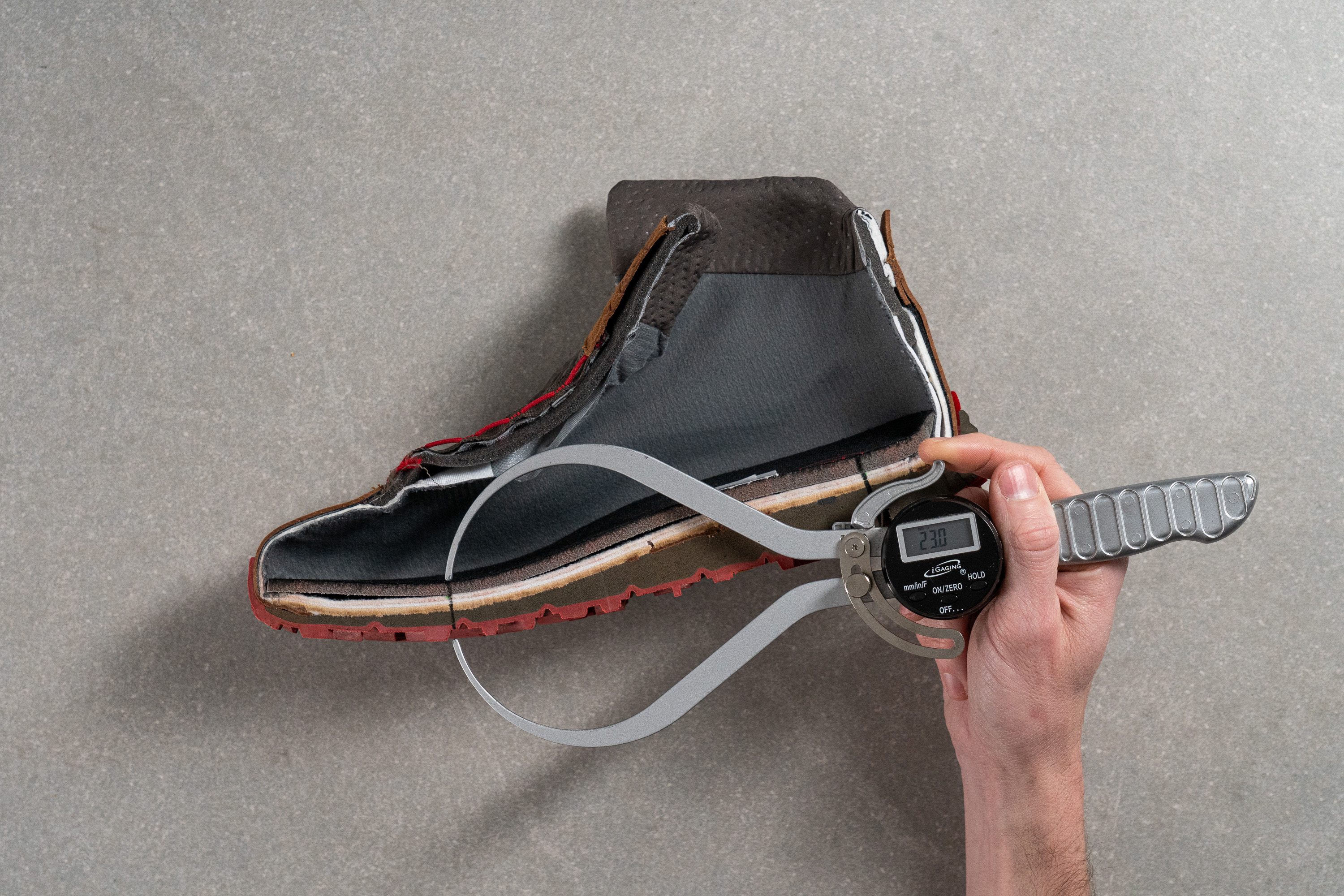
In practical terms, this gives us an adequate amount of foam underfoot that feels comfy and protective while still giving us a good sense of the ground below.
| Mountain 600 | 23.0 mm |
| Average | 23.0 mm |
Drop
The difference between our stack measurements leaves us with a drop height of 13.8 mm. This feels quite natural underfoot, especially for those accustomed to boots with an elevated heel.
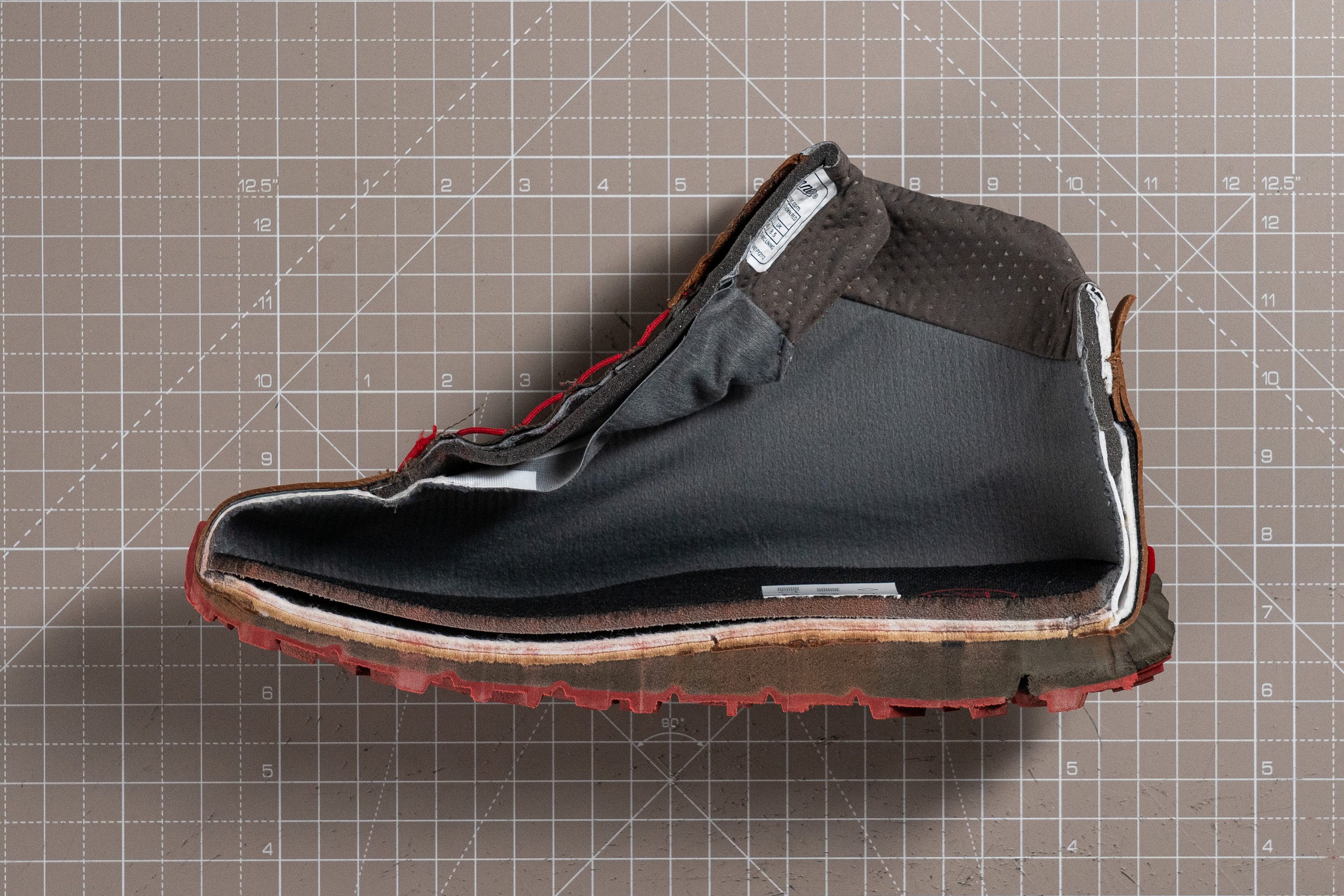
| Mountain 600 | 13.8 mm |
| Average | 13.3 mm |
Midsole softness
So far, it seems that the Mountain 600 is the epitome of the average hiking boot, even down to the midsole which gave us an average durometer reading of 24.3 HA.
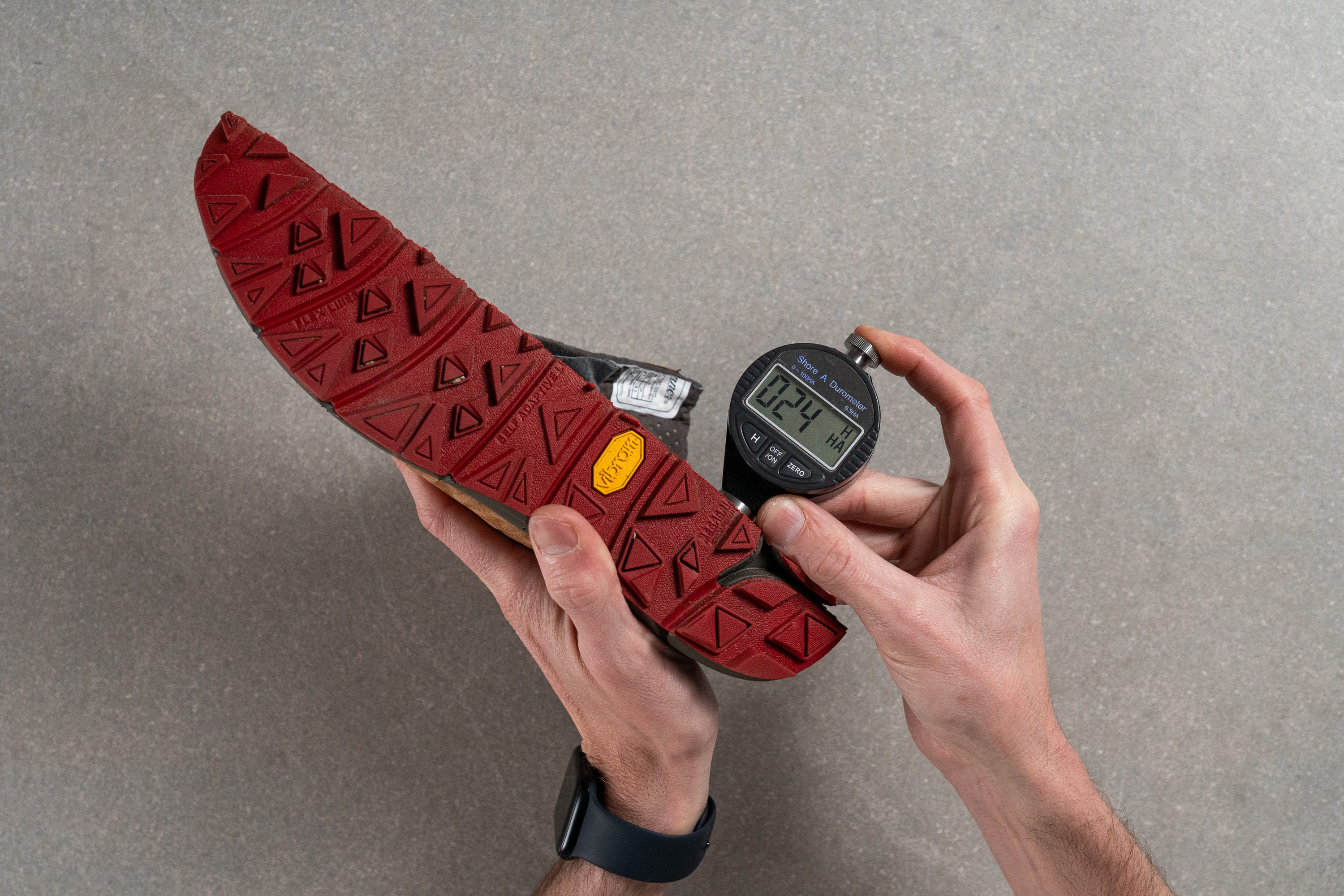
This level of softness provided us with balanced cushioning that felt incredibly comfortable during our test hikes whether out for a quick jaunt or a gruelling full-day trek. Apart from softening our landings, the midsole also has a nice little pep in its step that feels pleasant whether on the trails or even out and about around town.
| Mountain 600 | 24.3 HA |
| Average | 28.4 HA |
Size and fit
Size
Danner Mountain 600 fits true to size (111 votes).
Internal length
| Mountain 600 | 276.9 mm |
| Average | 271.4 mm |
Width / Fit
UpdatedWith a predictable D medium-width fit and an array of width options (wide and extra wide), we believe that every hiker can achieve a perfect fit in the Danner Mountain 600.
To back it up with facts, we created a mould of the boot's interiors using a custom gel formula. Once the replica was solid, we measured its widest part at 94.3 mm which is exactly on par with the category average.
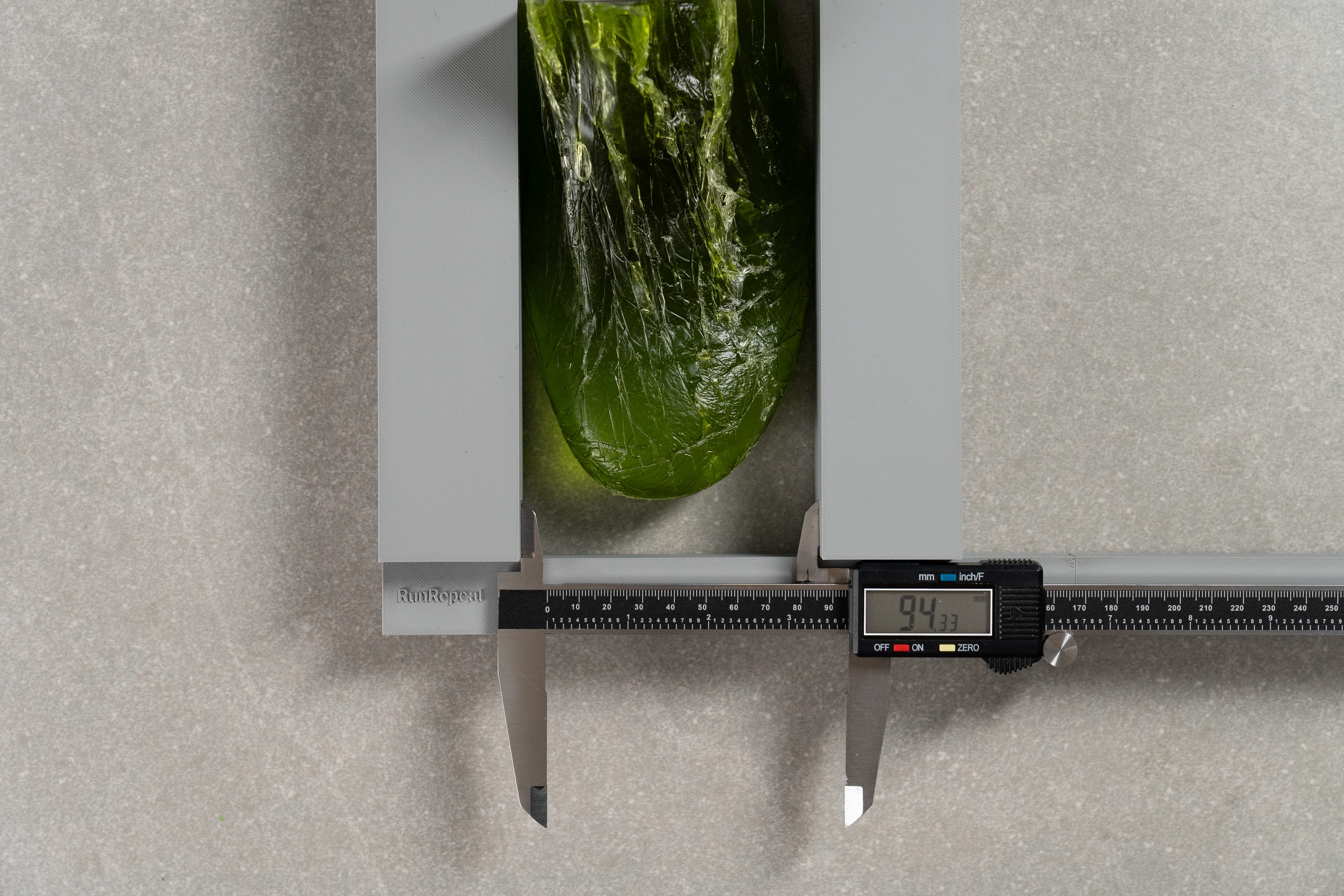
| Mountain 600 | 94.3 mm |
| Average | 93.8 mm |
Toebox width
UpdatedThe boot also proved to be rather accommodating in the toe area with a standard width of 72.3 mm near the big toe.
This confirms the boot's moderately rounded toebox shape which doesn't sqeeze or put pressure on the toes.
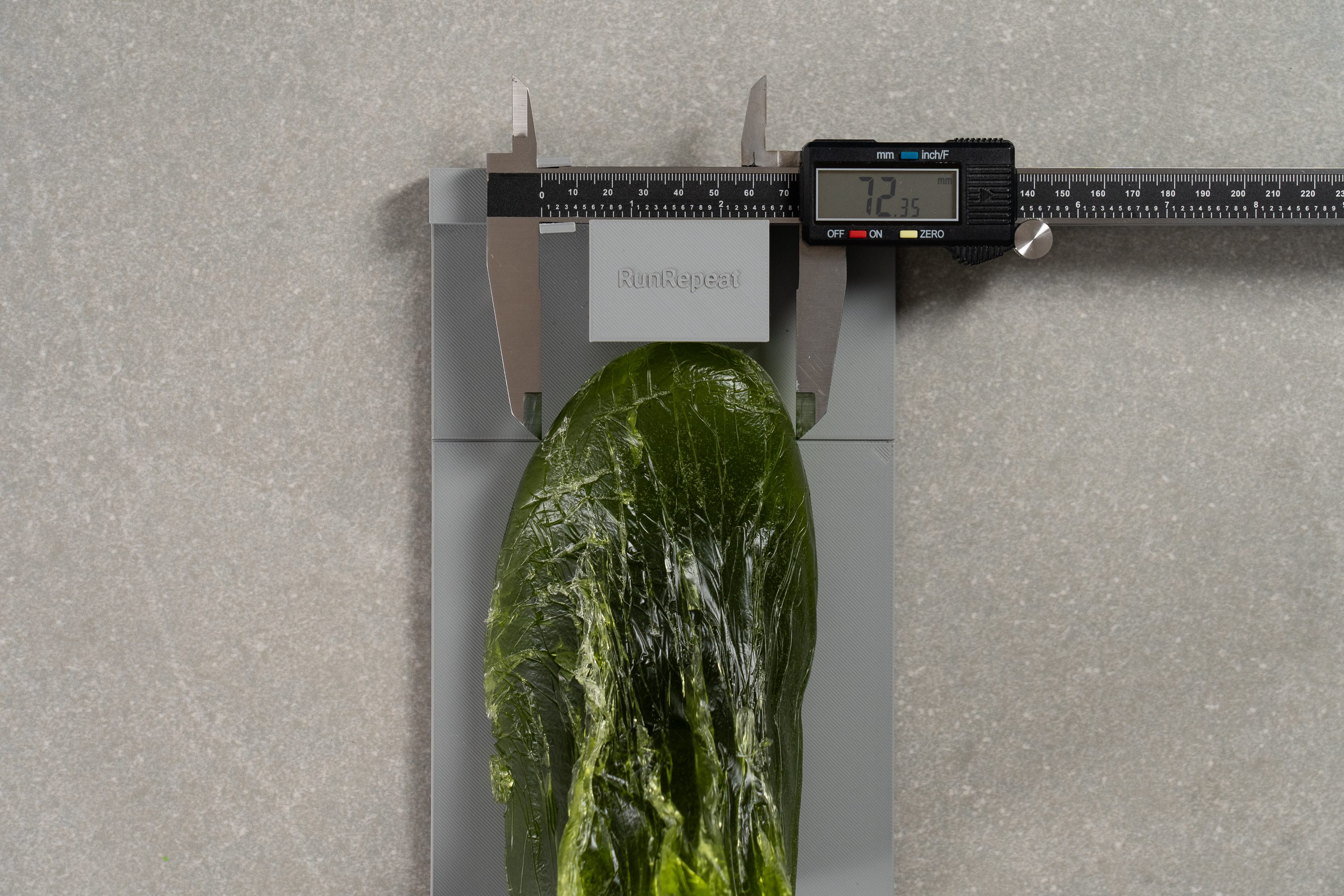
| Mountain 600 | 72.3 mm |
| Average | 71.2 mm |
Toebox height
The only area of potential concern is the boot's below-average toebox height. At 22.9 mm, it is notably shallower than average and can aggravate toe-reated conditions like black toenails.
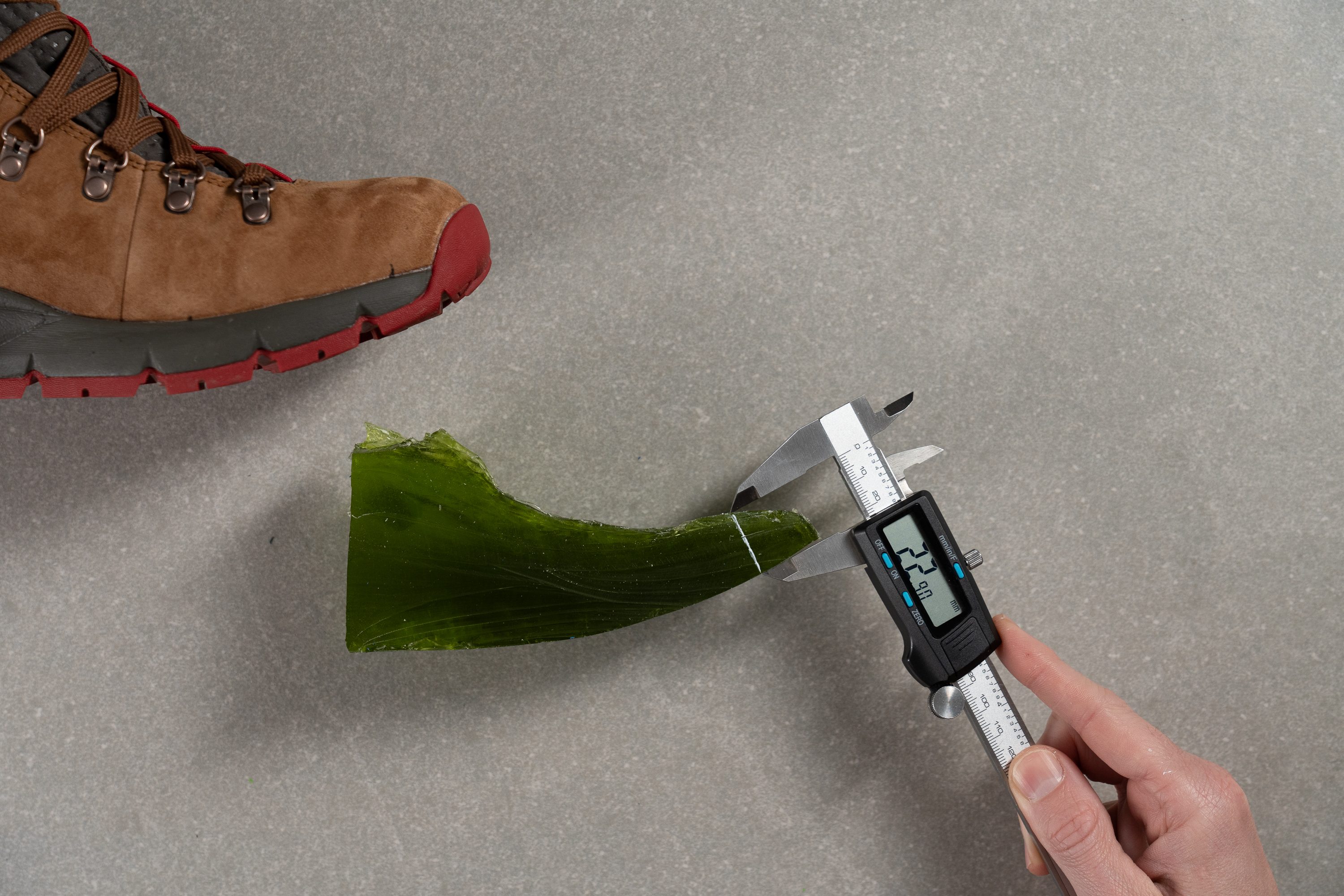
| Mountain 600 | 22.9 mm |
| Average | 27.4 mm |
Traction / Grip
Lug depth
Falling in line with the boot's average motif are the lugs which are 4 mm thick according to our calliper measurements. This provided us with great traction over most mild trails, given they weren't too technical or wet. We did experience some slips when scrambling across slick slick surfaces.
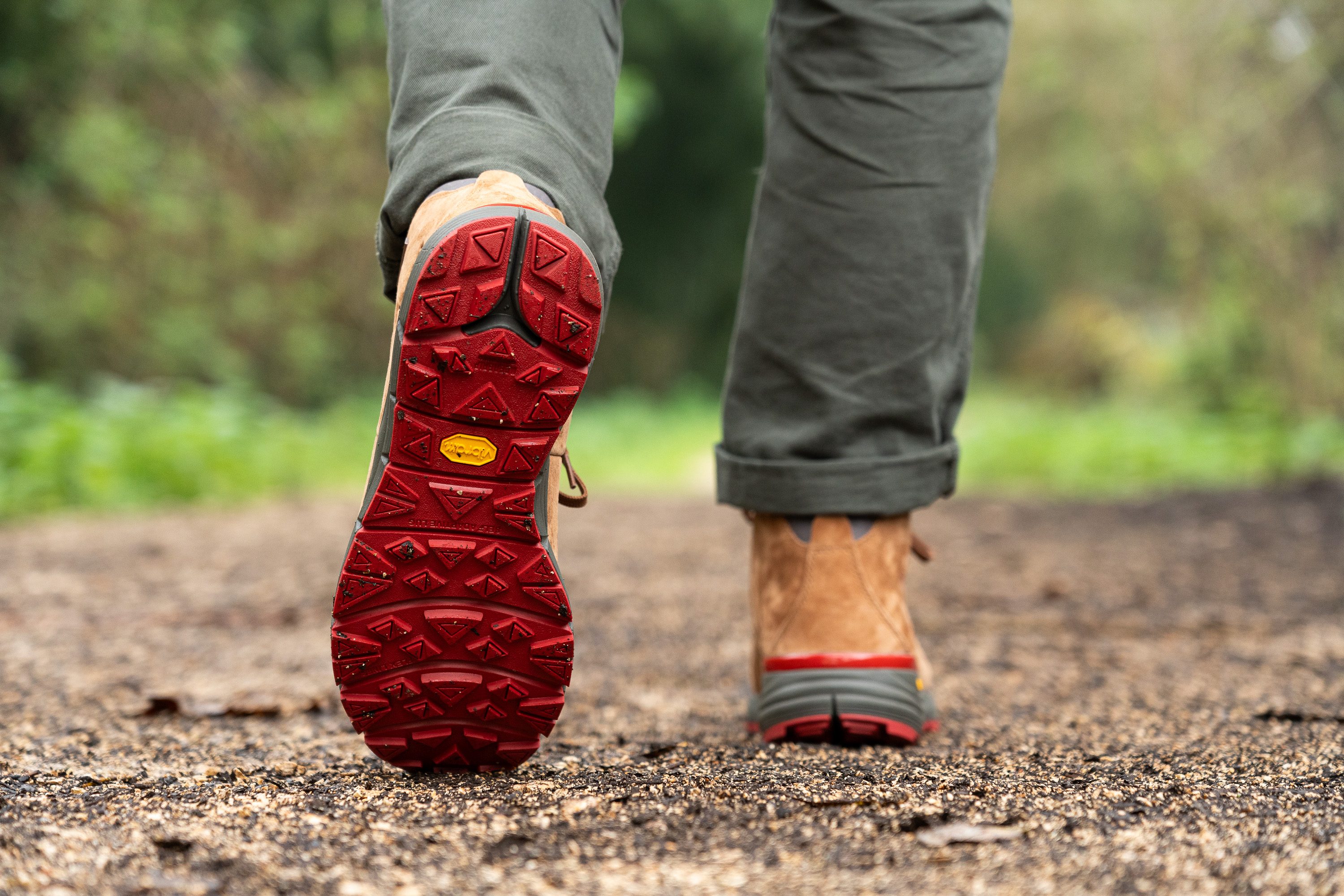
For a boot with a more beastly lug configuration, we recommend the Salomon Quest 4 GTX as a grippier alternative that can take on just about any terrain.
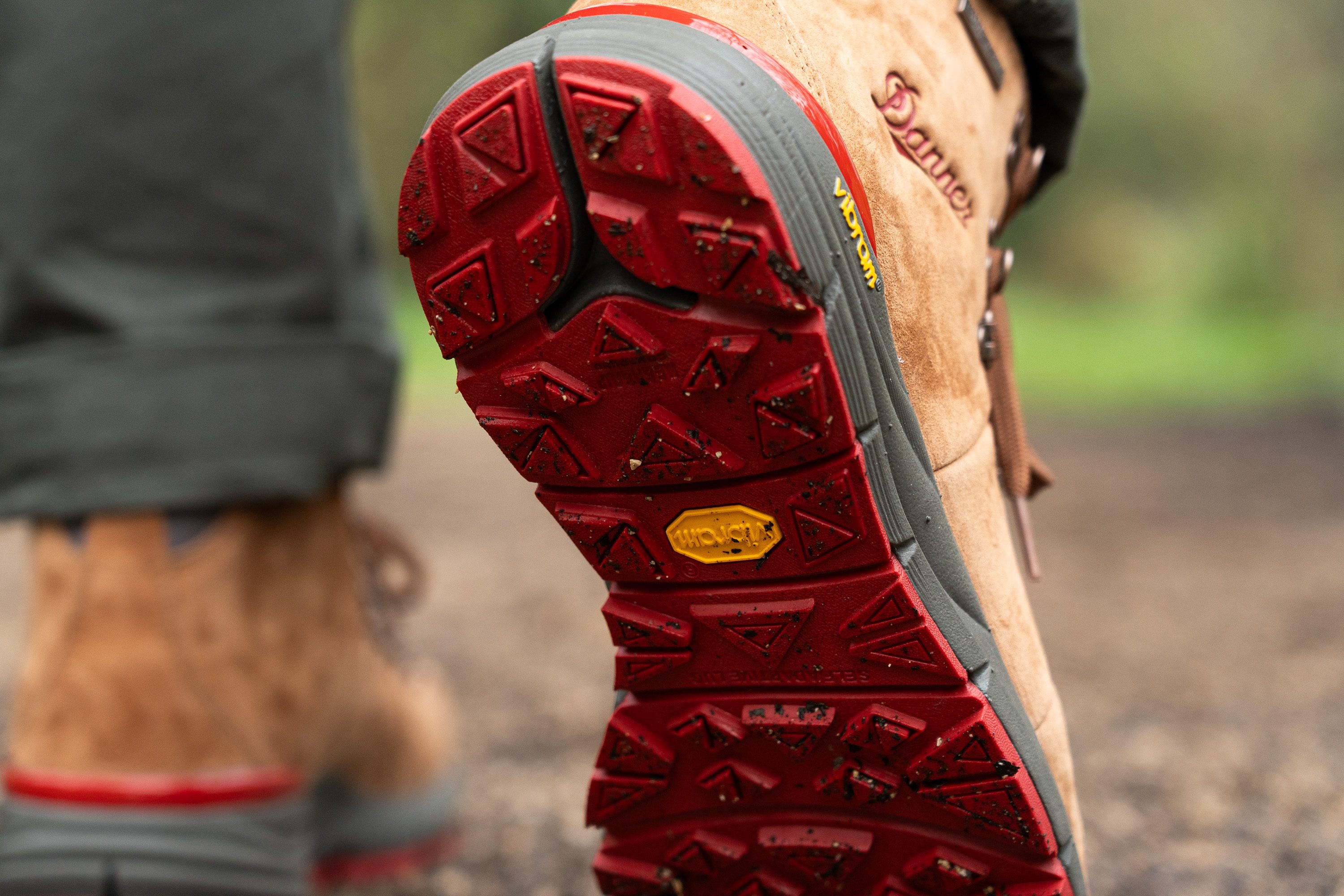
| Mountain 600 | 4.0 mm |
| Average | 4.3 mm |
Flexibility / Stiffness
The Danner Mountain 600 is a fairly stiff boot but let's see how it stacks up against the average.
To check that, we put the boot into a shoe flexing tester and measured the amount of force it takes to bend it by 30 degrees. At 34.8N, it required a bit more force than average indeed.
While a stiffer boot may not sound too appealing initially, it's actually quite effective over uneven terrains as they prevent excessive flexion when stepping on hard obstacles like rocks or roots. This not only promotes a more stable stride but also mitigates foot fatigue during longer hikes.
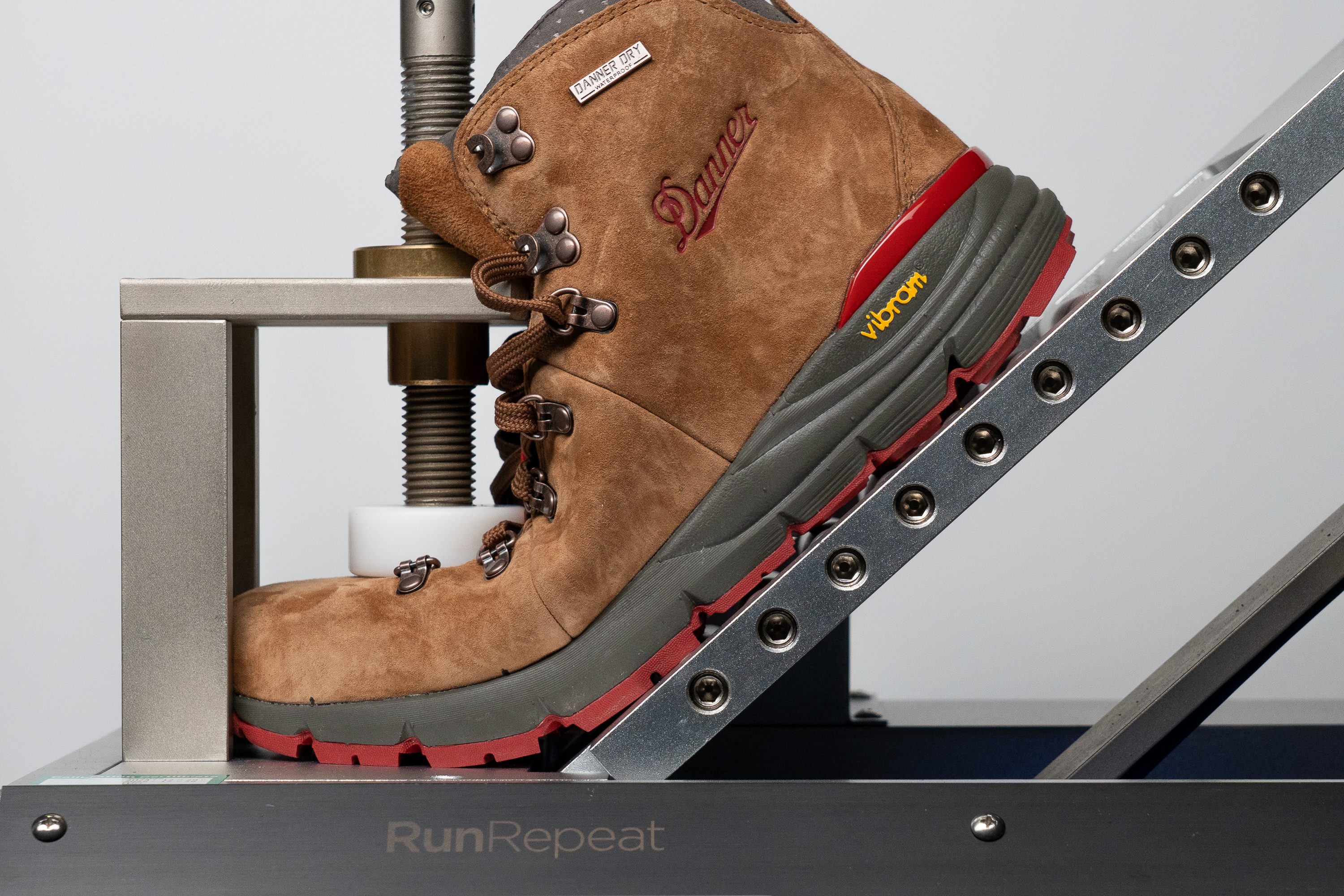
| Mountain 600 | 34.8N |
| Average | 31.5N |
Stiffness in cold (%)
We also repeated the stiffness test after chilling the Mountain 600 for twenty minutes, with 50.3 N of force needed to bend the shoe to the desired point post-freezer. This is, yet again, on par with our current lab average. However, with only an 18.4% difference in stiffness between warm and cold conditions, the Mountain 600 is a little more consistent than average, making it a good choice for hikers with drastic weather fluctuations between summer and winter.
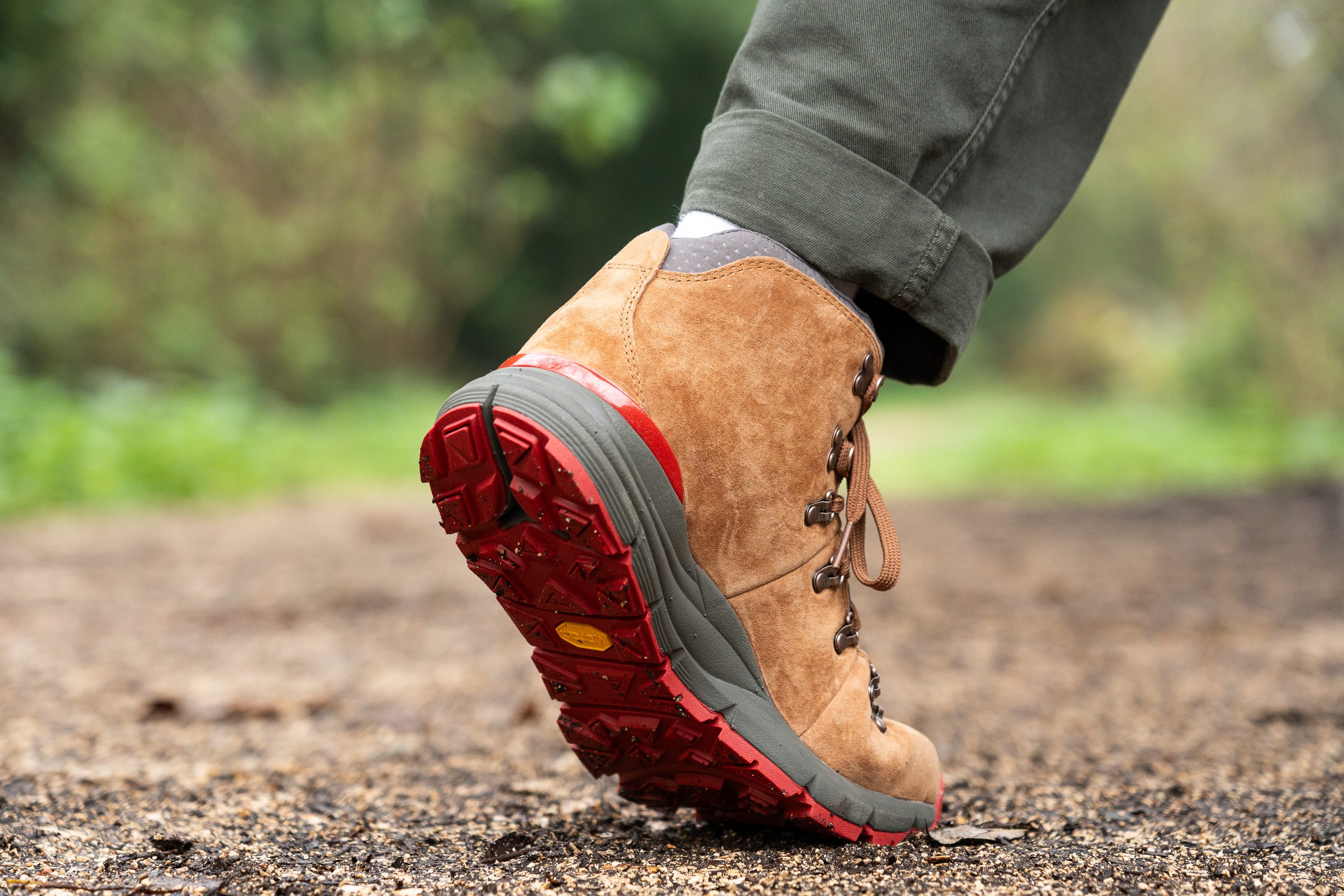
| Mountain 600 | 18% |
| Average | 24% |
Weight
Tipping the scale at 18.7 oz (529g), the Mountain 600 is heavier than the average hiking boot but not by that much. It still feels rather comfortable underfoot, even on ascents and descents, with a confidence-inspiring heft that makes us feel ready to take on the trails.
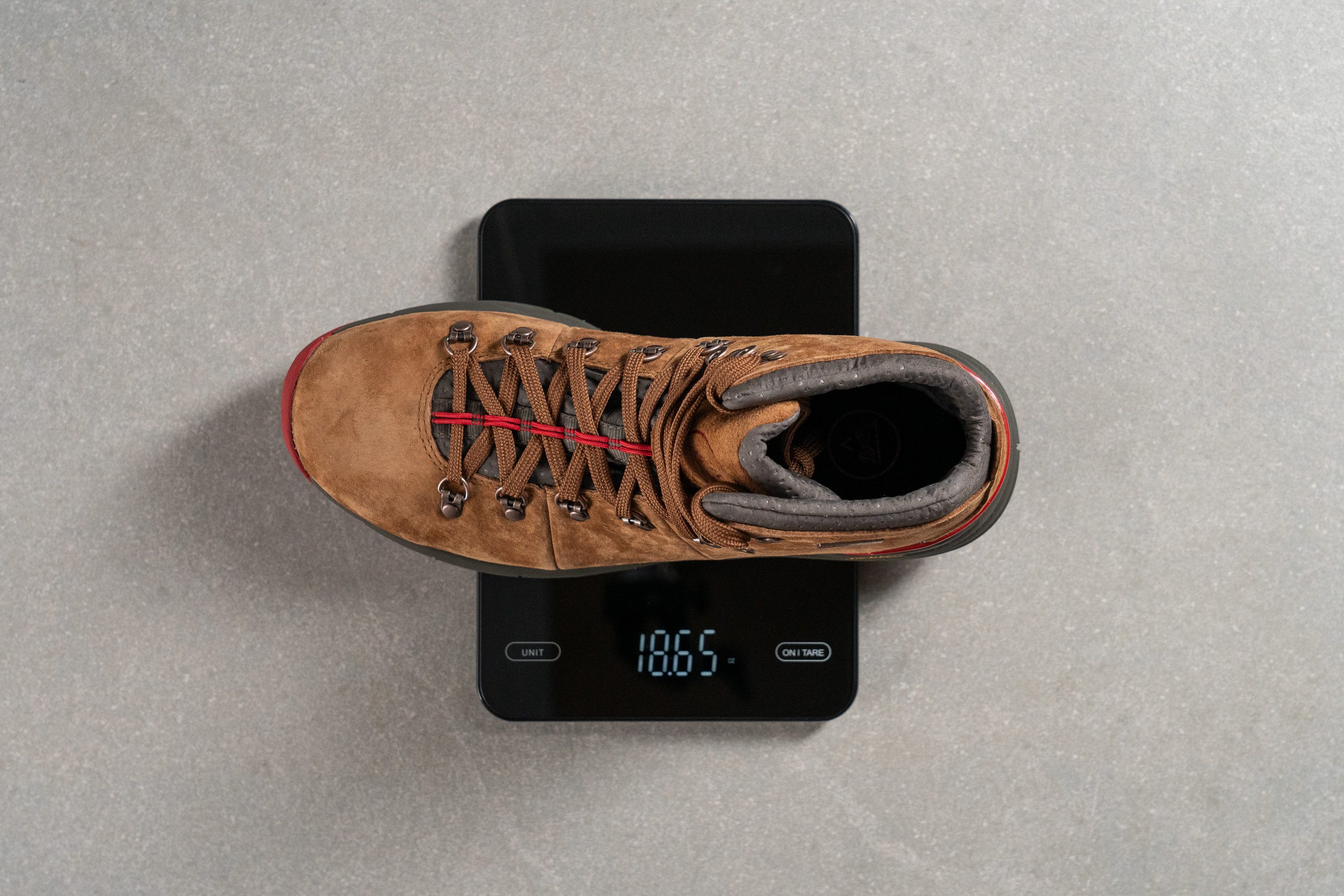
| Mountain 600 | 18.7 oz (529g) |
| Average | 18.7 oz (531g) |
Breathability
to get a visual idea of how breathable the Mountain 600 is, we pumped the boot full of smoke in order to observe how easily it filters out. As we can clearly see, the Mountain 600's tongue lets out a rather steady stream of smoke while the rest of the upper remains airtight. This earns the Mountain 600 a 2 out of 5 for breathability; not great in the grand scheme of things, but still better than expected for a waterproof shoe.
Inspecting a backlit cross-section of the Mountain 600, we can see that only the perforated mesh tongue allows any light to peek through, thus explaining the boot's adequate airflow in that section.
As for the rest of the upper, our microscope reveals that it is indeed made out of solid slabs of suede which explains the boot's overall insular nature.
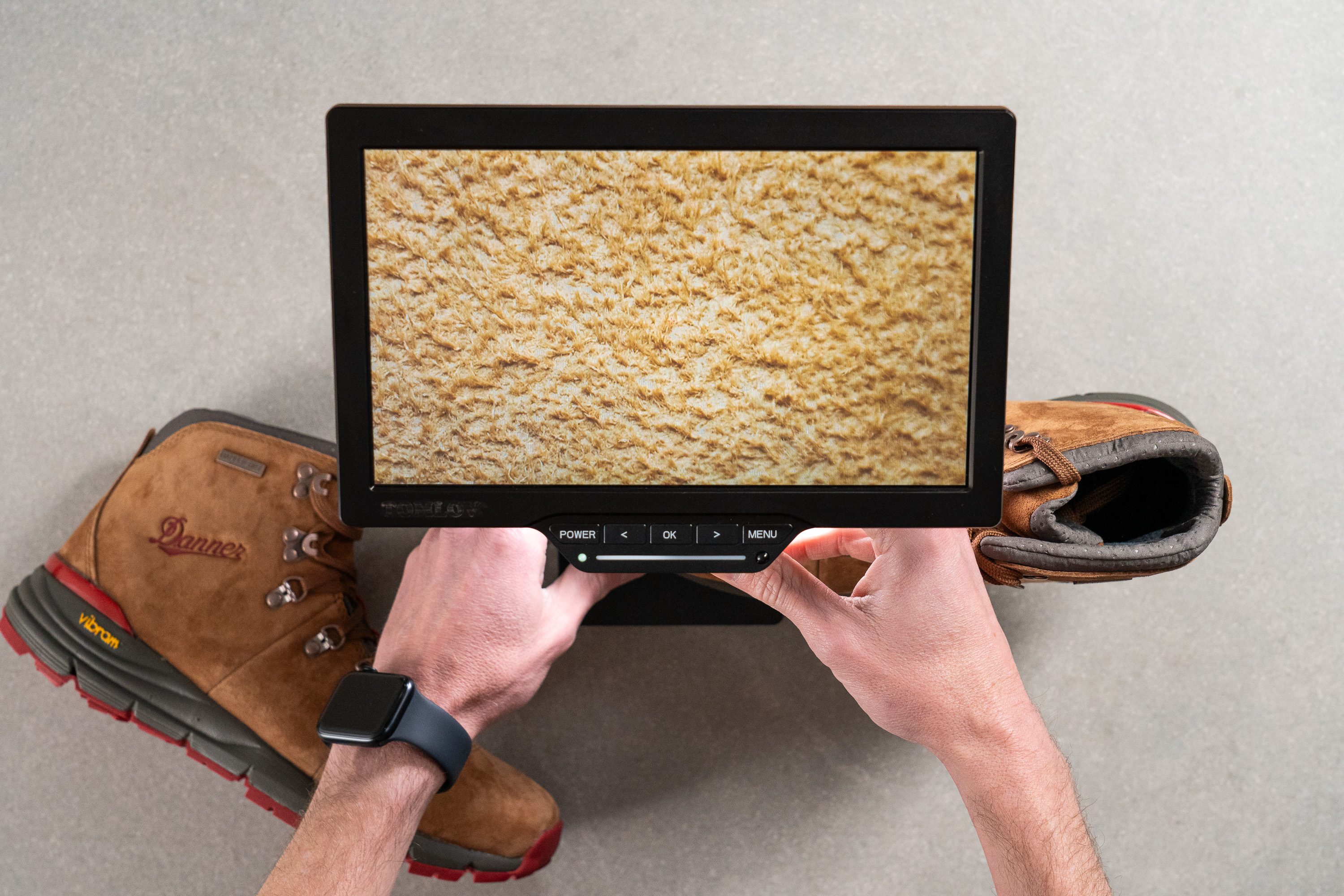
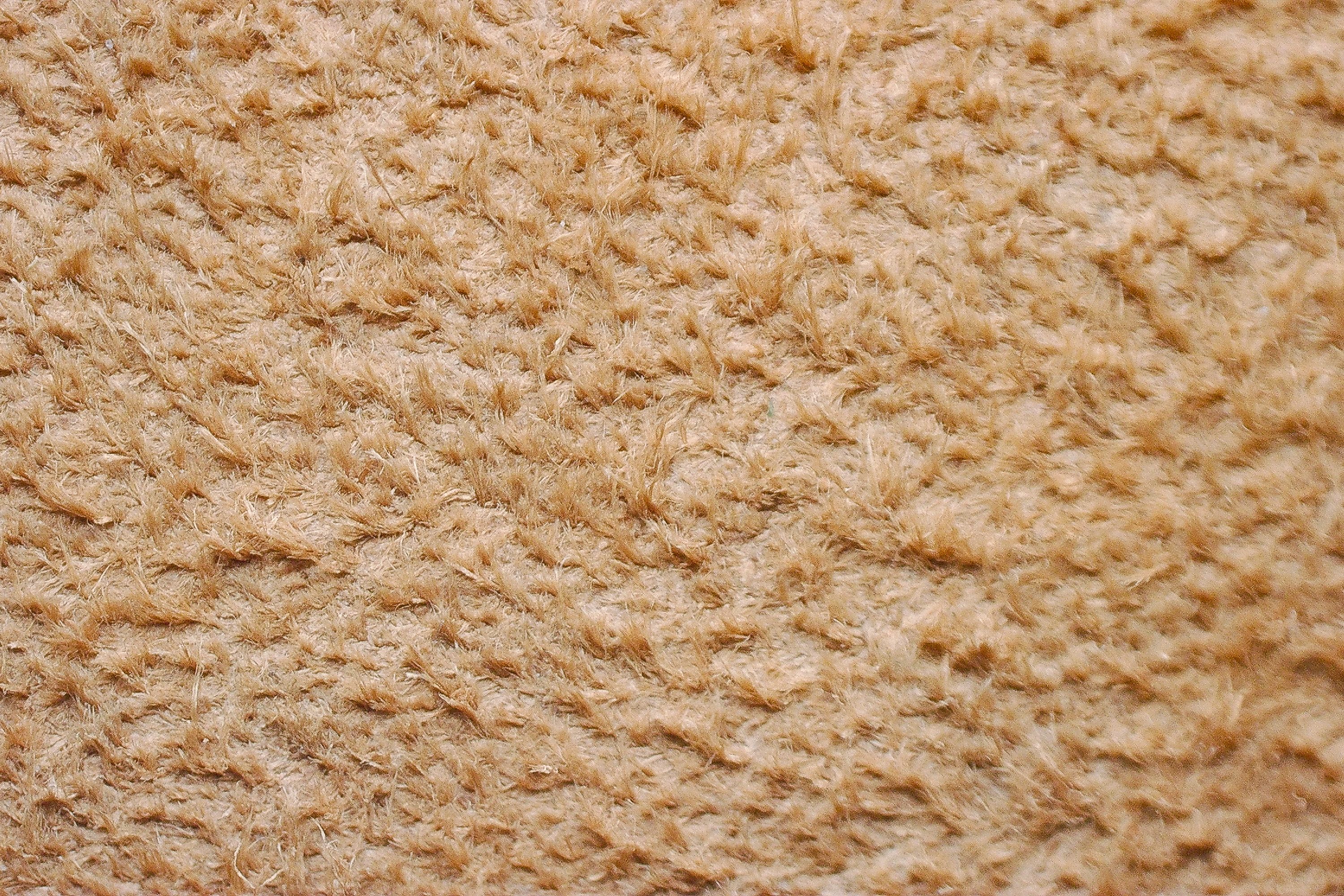
| Mountain 600 | 2 |
| Average | 1.3 |
Stability
Lateral stability test
The Mountain 600 feels quite stable underfoot
Torsional rigidity
We were met with so much resistance when attempting to bend and twist the boot in our hands that we could barely get it to budge, thus earning the Mountain 600 the stiffest torsional rigidity of 5 out of 5.
This meant that the shoe actively resists the natural contortions of our foot as we traverse uneven surfaces, leaving us with a nice and level base that promotes stable and surefooted landings as we hike in this boot.
| Mountain 600 | 5 |
| Average | 4.4 |
Heel counter stiffness
The heel counter also proved to be quite resistant to our manual manipulations, earning an above-average stiffness score of 4 out of 5.
As such, the Mountain 600 is able to securely hold our foot in place while still having a bit of wiggle room to allow for some natural lateral movements at the heel.
| Mountain 600 | 4 |
| Average | 3.6 |
Midsole width - forefoot
Using our caliper, we measured the Mountain 600's midsole to be 113.7 mm wide at the forefoot. It shouldn't be a surprise that this is within the average range for hiking boots and means that we had plenty of platform underfoot to ensure stable landings and toe-offs while testing this boot.
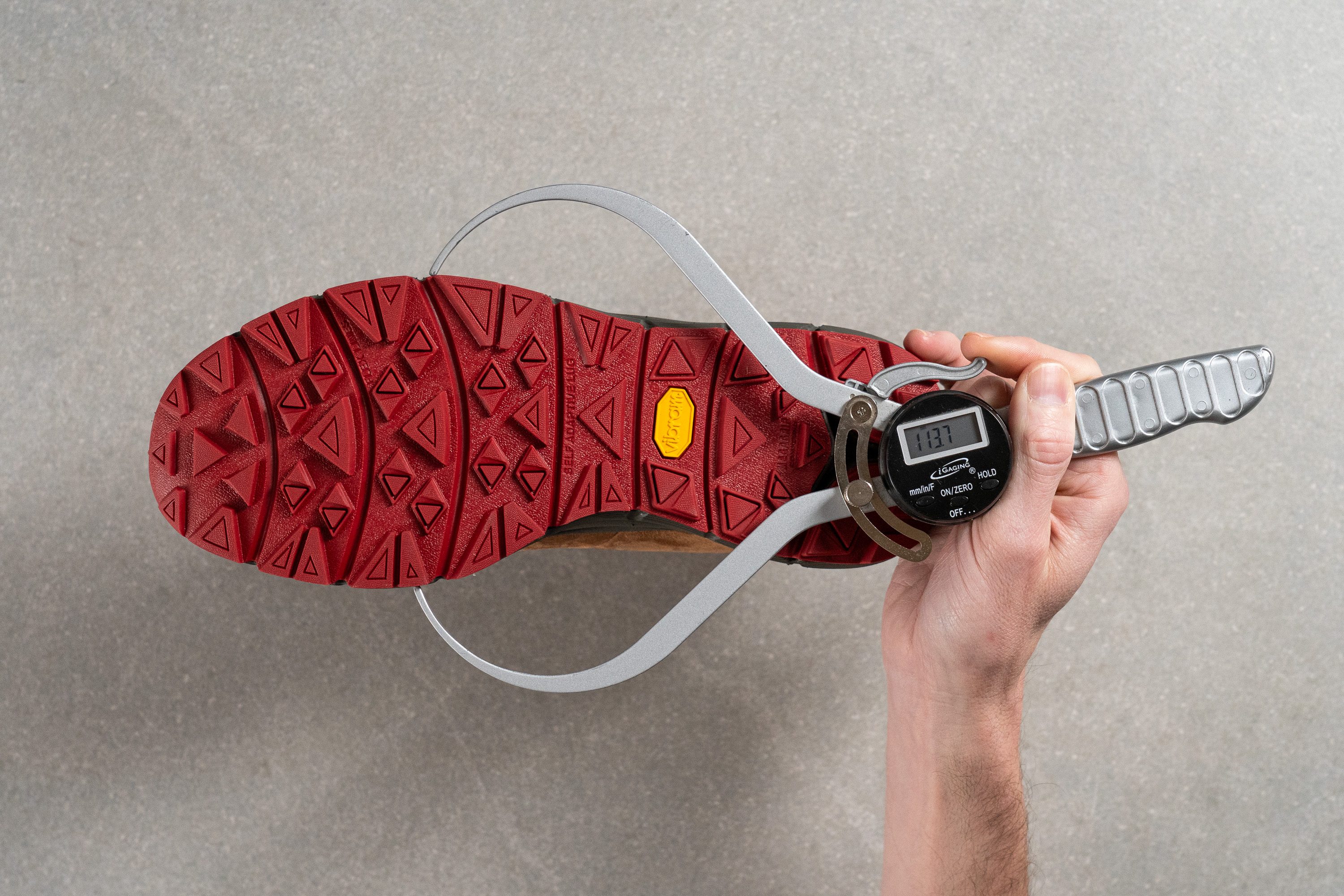
| Mountain 600 | 113.7 mm |
| Average | 111.5 mm |
Midsole width - heel
The Mountain 600's midsole is similarly average at the heel, measuring 91.2 mm wide according to our caliper.
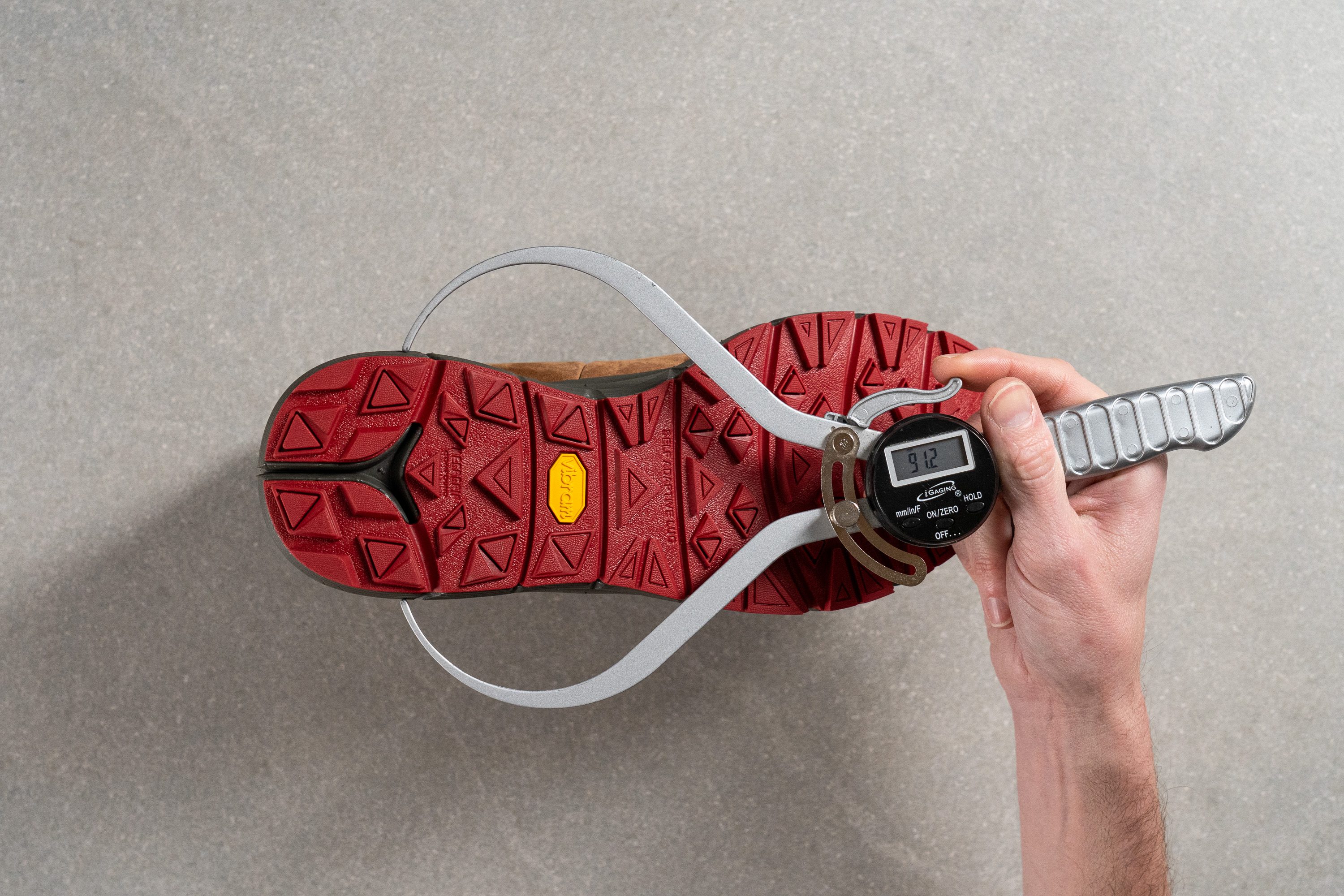
| Mountain 600 | 91.2 mm |
| Average | 87.6 mm |
Durability
Toebox durability
To simulate extreme wear and tear over time, we subjected the Mountain 600 to the relentless grinding of our Dremel, starting with the toebox. Spinning at 5K RPM, we set the abrasive element against the suede upper with 3.2N of force.
Once the twelve-second test was over, we assessed the damage and found that our tool had merely smoothed over the suede at the point of contact a merely left a tiny scuff in its wake. As such, the Mountain 600 earns a perfect 5 out of 5 for toebox durability.
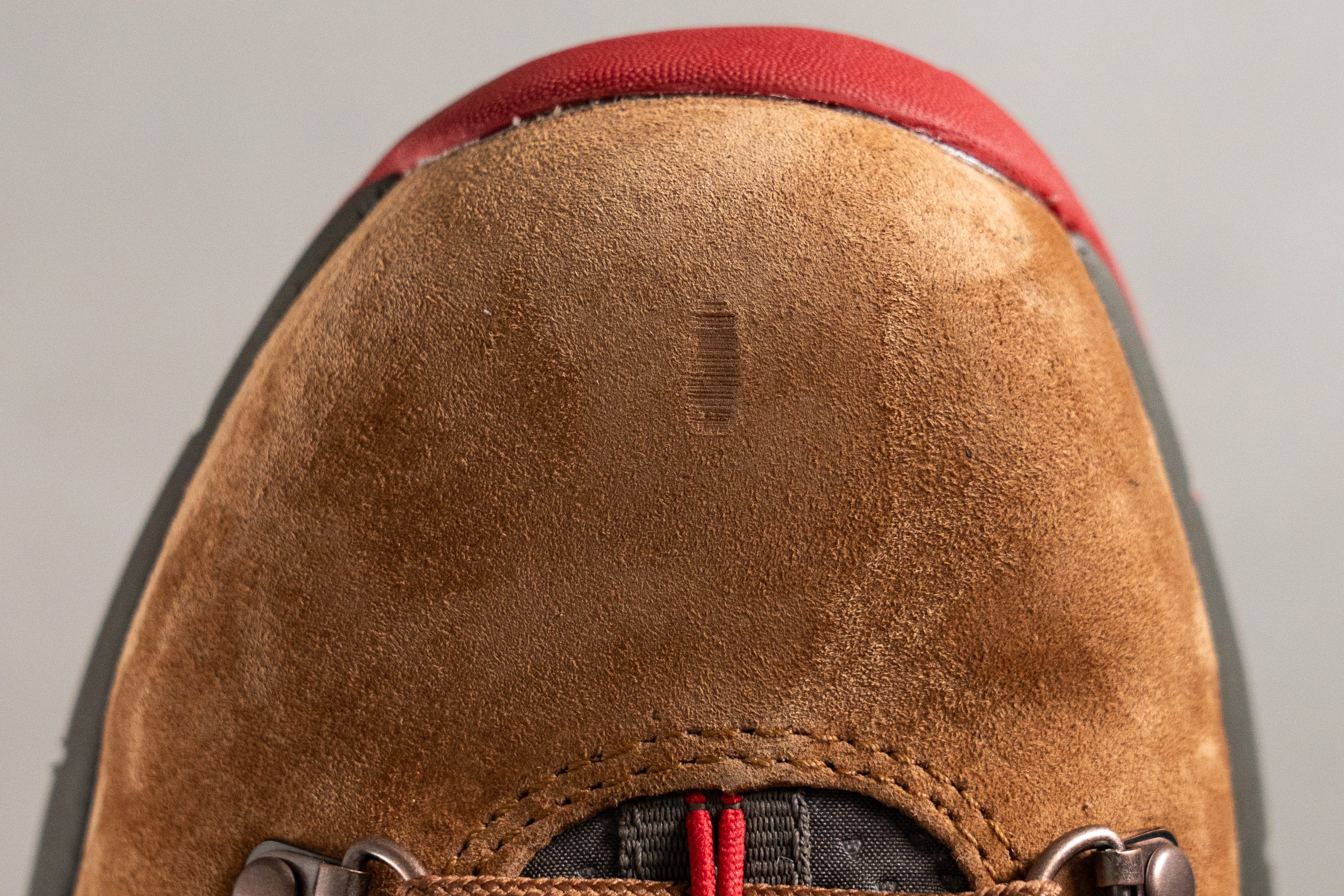
| Mountain 600 | 5 |
| Average | 4.3 |
Heel padding durability
Next, we turned our attention to the Mountain 600's heel counter, this time only for four quick seconds.
Despite the brevity of this test, our tool was able to inflict relatively heavy damage to the Mountain 600. It made quick work of the lining and managed to suck out much of the scant padding found at the heel.
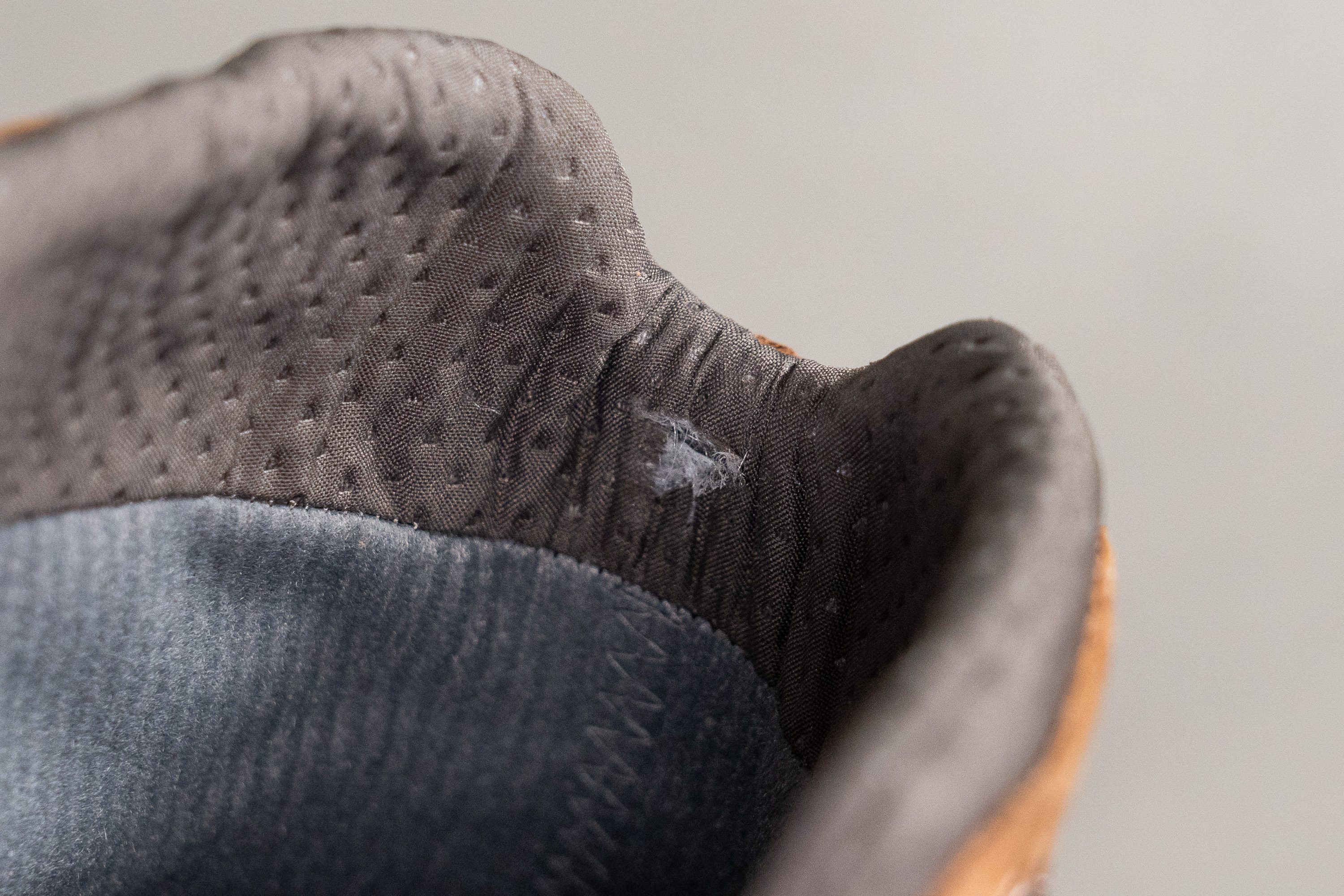
| Mountain 600 | 2 |
| Average | 3.6 |
Outsole hardness
Pressing our durometer against the Mountain 600's Vibram outsole yields an average reading of 87 HC. This usually denotes a good balance of grip and durability, the latter of which will be tested by our Dremel in the next section.
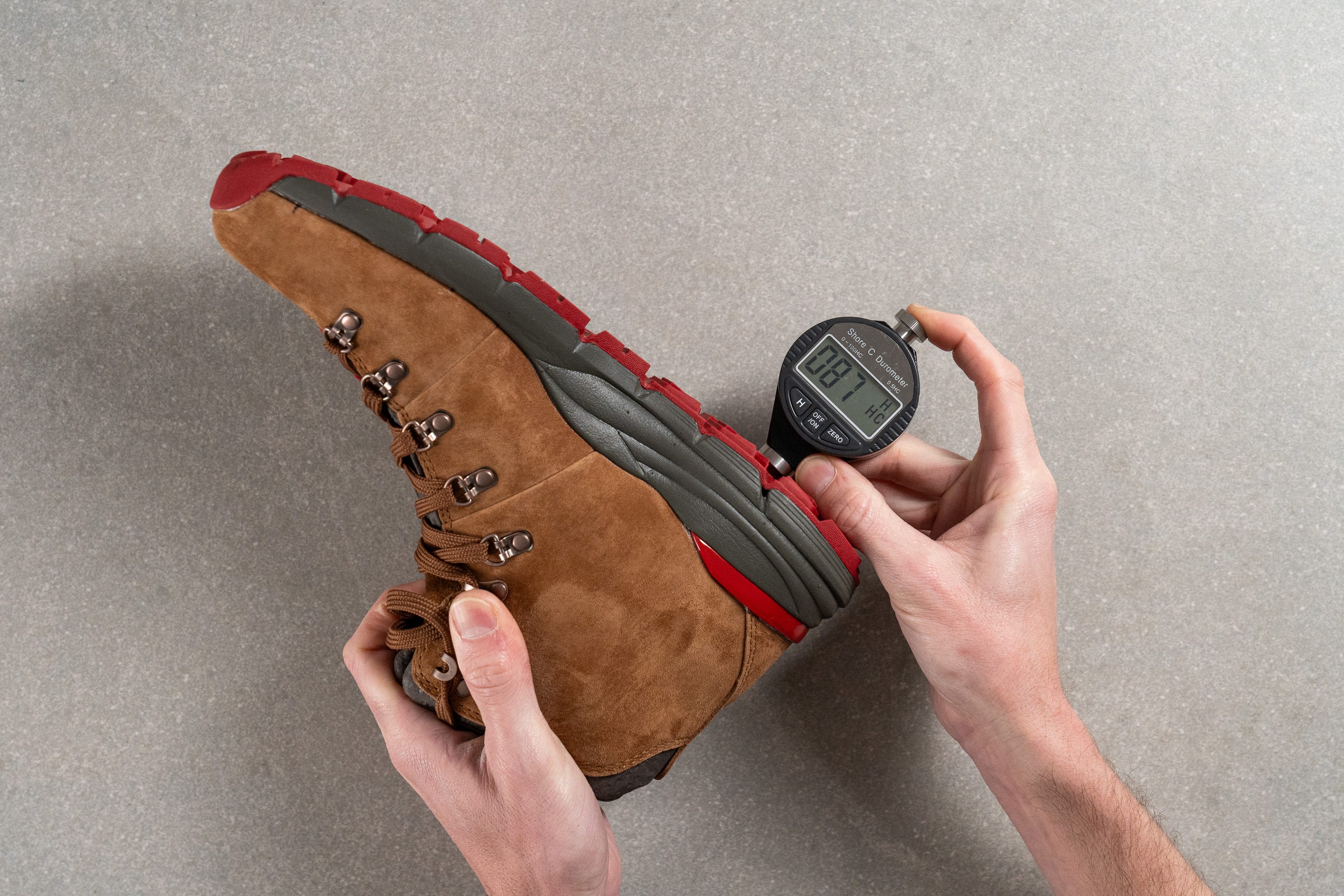
| Mountain 600 | 87.0 HC |
| Average | 87.1 HC |
Outsole durability
This time spinning at 10K RPM, we set our Dremel against one of the Mountain 600's lugs for twenty-two seconds of abrasive force.
We then used a tired tread gauge to measure the indent left in the aftermath and found that we had lopped off 0.9 mm of material from the Mountain 600's outsole. Despite being renowned for durability, the Vibram outsole fell short of our expectations this time as the Mountain 600 didn't perform quite as well as the average hiking boot in this test. This shouldn't be too much of an issue when it comes to regular use as there is still plenty of rubber left behind to wear through.
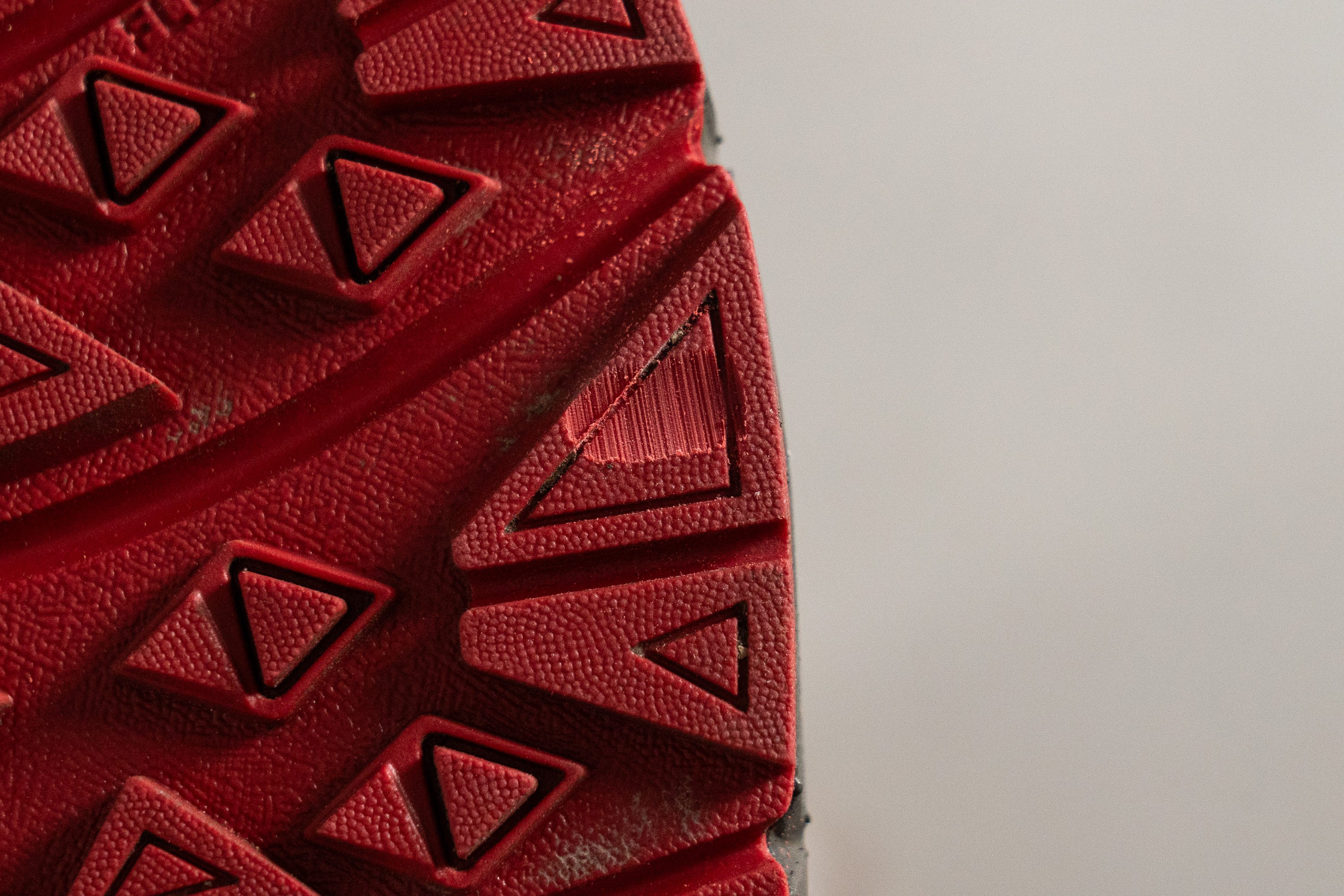
| Mountain 600 | 0.9 mm |
| Average | 0.8 mm |
Outsole thickness
Using our caliper, we found the Mountain 600's outsole to be slightly shorter than average at 2.1 mm thick.
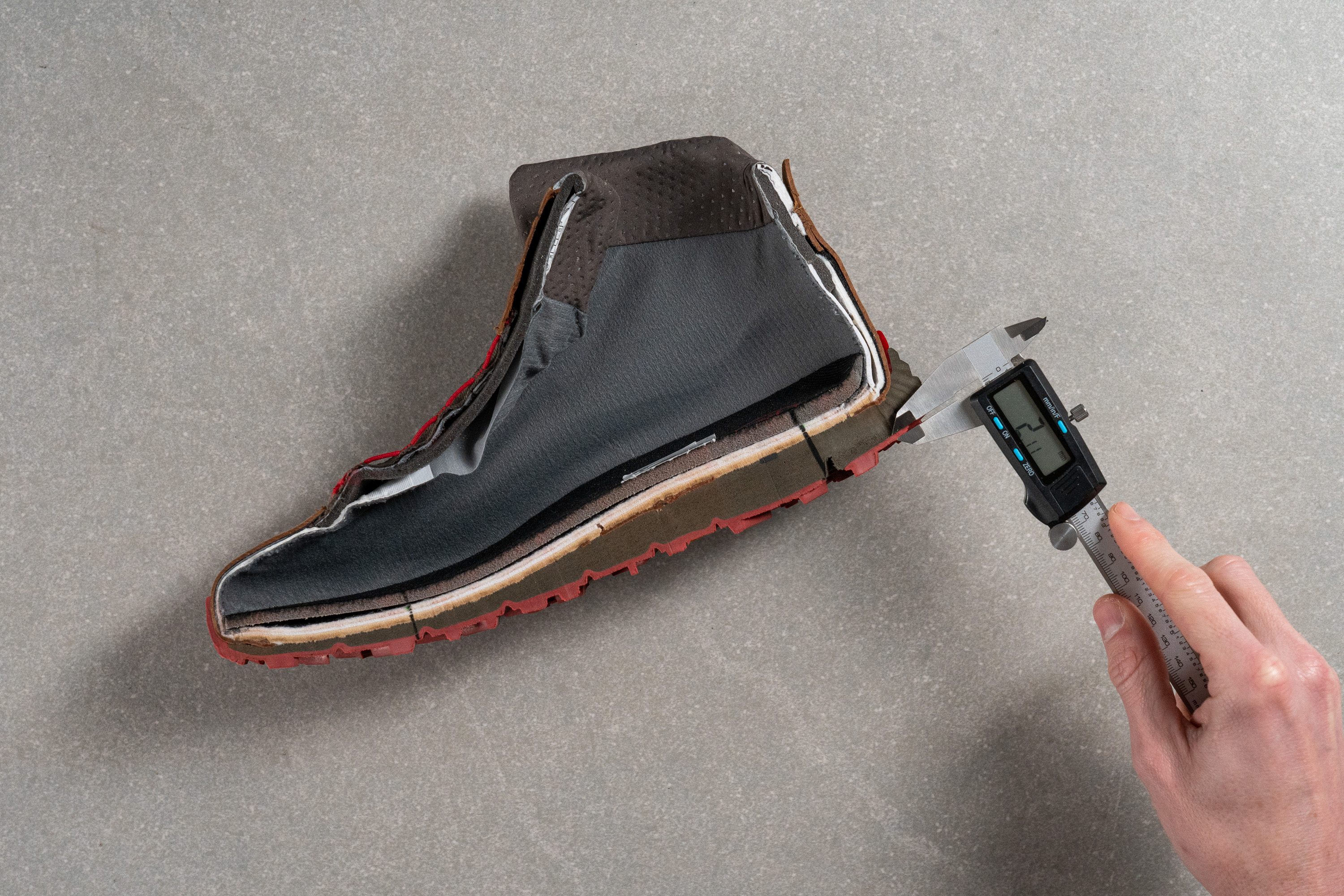
| Mountain 600 | 2.1 mm |
| Average | 2.9 mm |
Misc
Insole thickness
Using our caliper, we measured the Mountain 600's insole to be 6.9 mm thick. This is ever so slightly thicker than average and provides us with a nicely padded internal surface that effectively compliments the boot's midsole cushioning.
| Mountain 600 | 6.9 mm |
| Average | 6.0 mm |
Removable insole
The Mountain 600's insole isn't glued in so those in need of additional arch support can use custom orthotics with this boot.
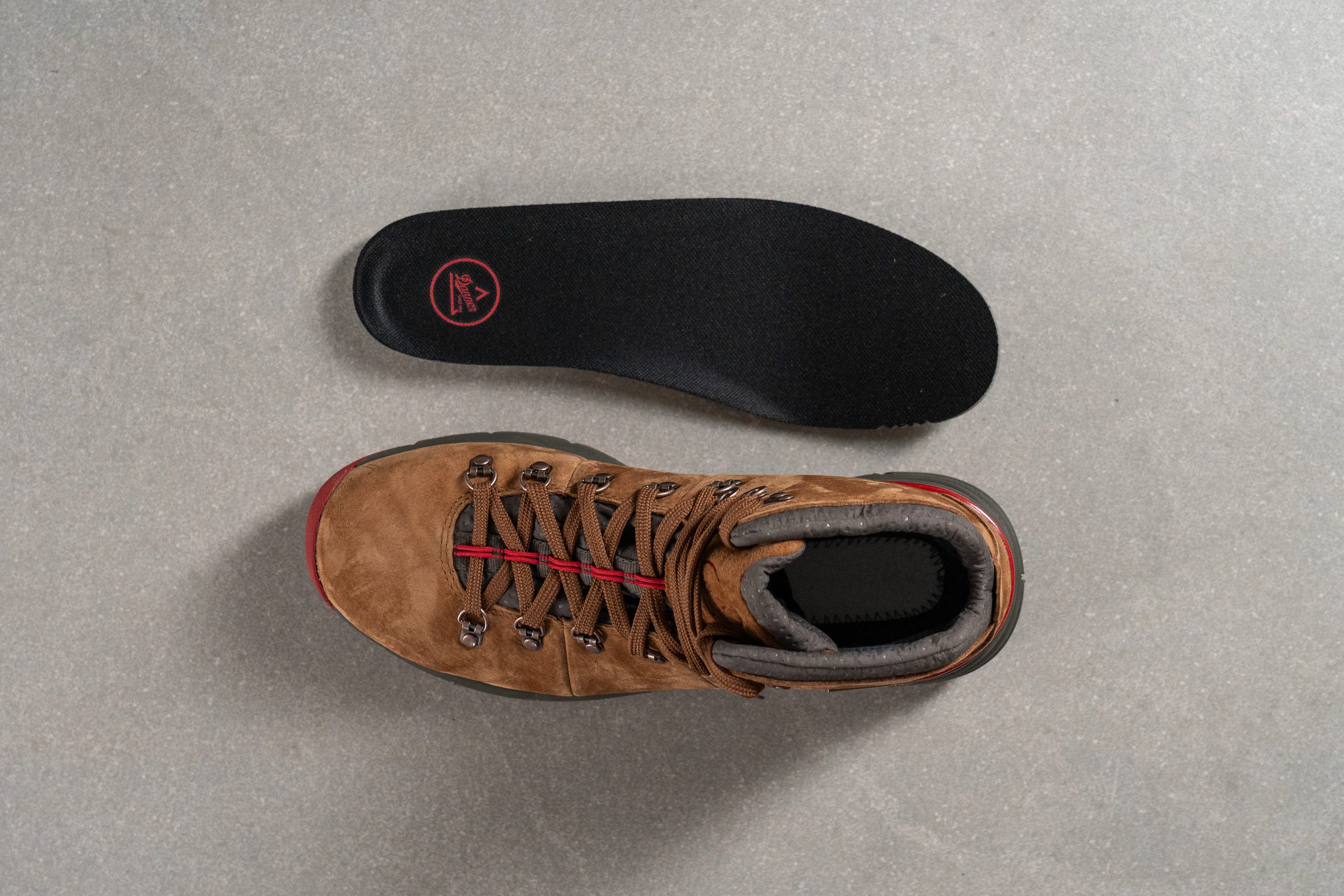
| Mountain 600 | Yes |
Midsole softness in cold (%)
To test the effects of cold weather on the midsole, we put the Mountain 600 in our freezer for twenty minutes. Once appropriately chilled, we pressed our durometer against the midsole once more, this time getting a reading of 29.4 HA. This is, yet again, within spitting range of our current lab average and only 20.9% firmer than at room temperature. As such, the Mountain 600 performs fairly consistently between warm and cold conditions, making it a great year-round boot.
| Mountain 600 | 21% |
| Average | 20% |
Reflective elements
The Mountain 600 doesn't feature any reflective elements, so we advise using additional high-vis gear when hiking along the roadside at night.
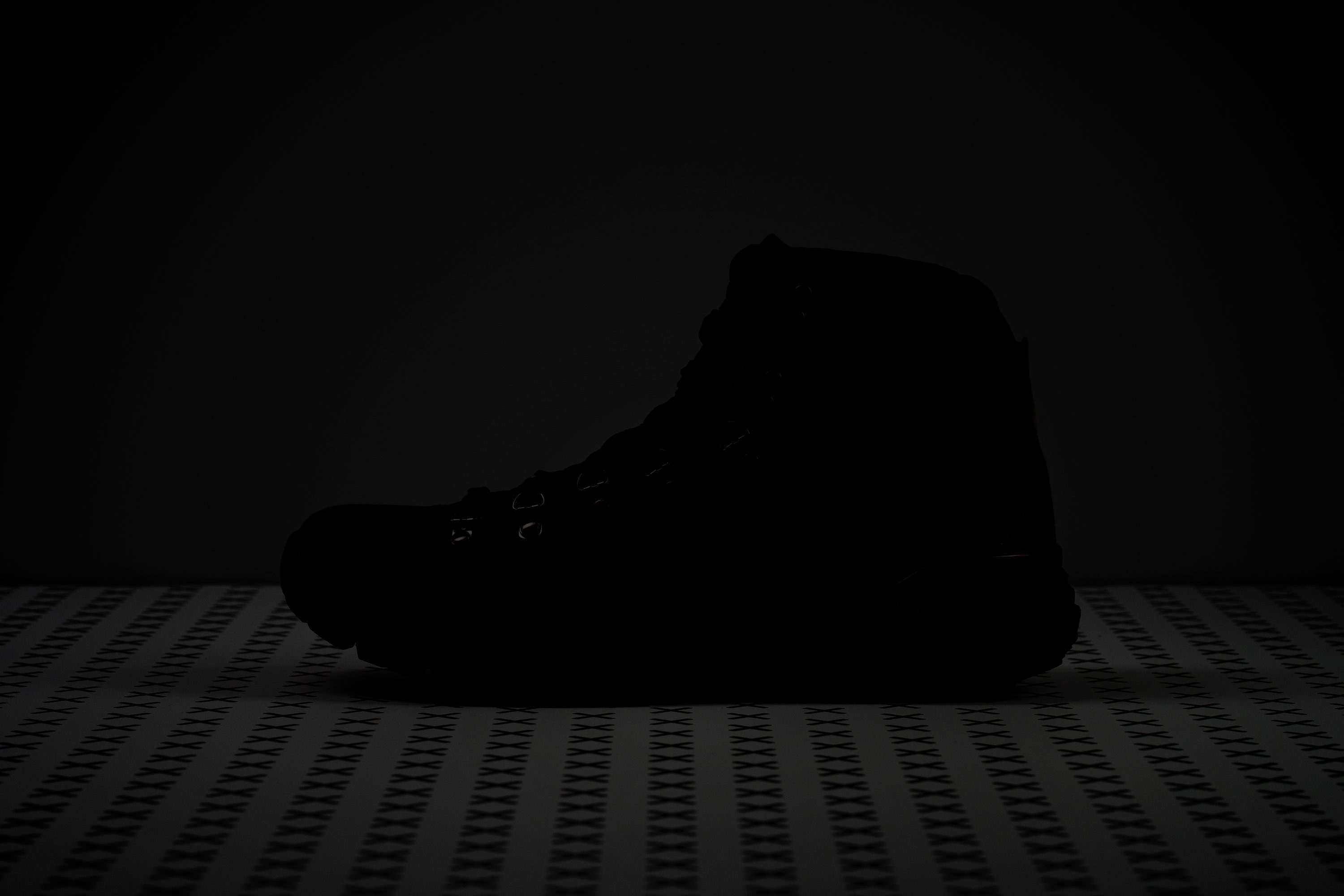
| Mountain 600 | No |
Tongue padding
At only 5.9 mm thick according to our caliper measurements, the Mountain 600's tongue is much less padded than our current lab average. Despite this, however, we found the boot to still feel quite comfortable internally during testing and didn't face any issues with lace bite across our instep once the boot was secure.
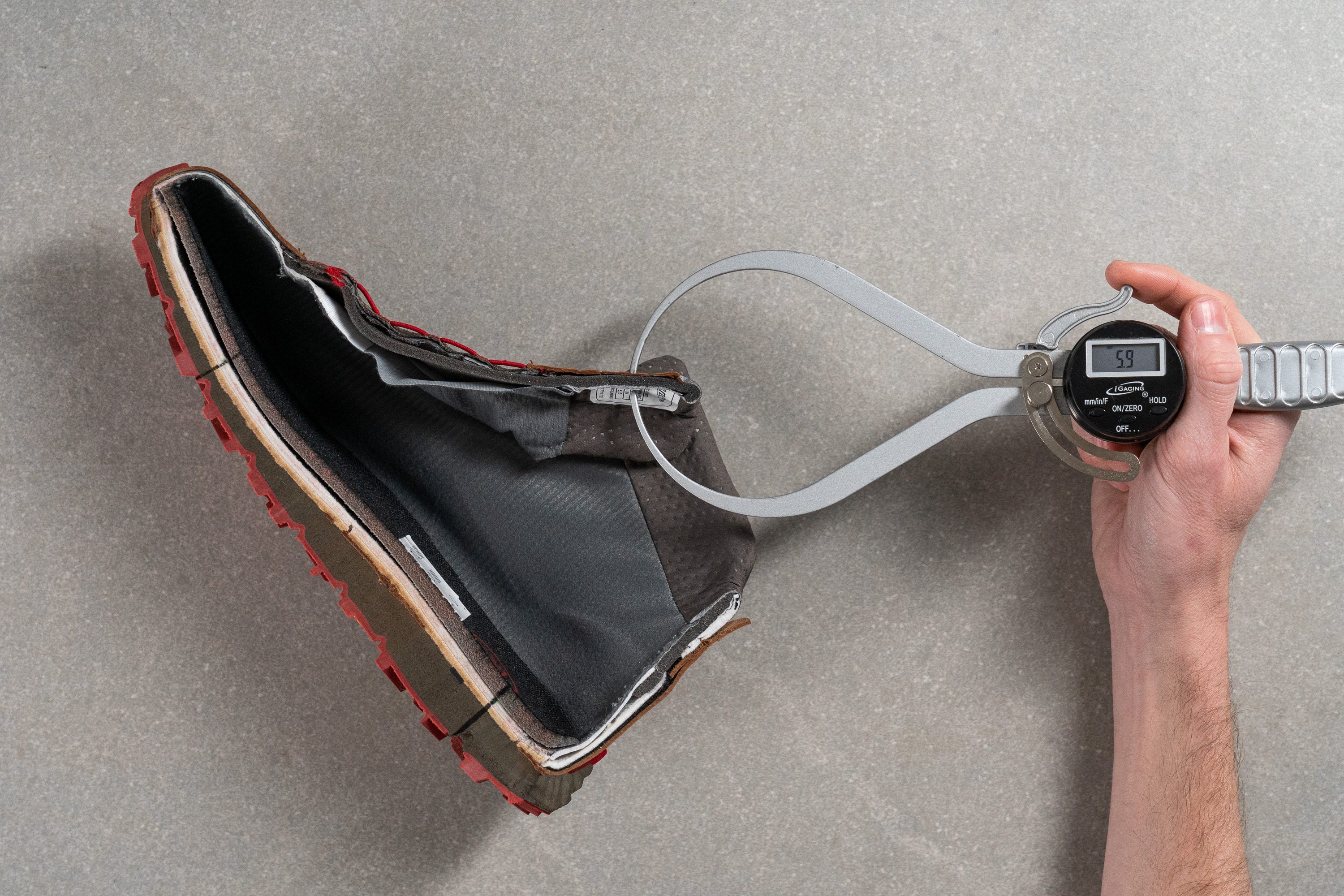
| Mountain 600 | 5.9 mm |
| Average | 11.2 mm |
Tongue: gusset type
The Mountain 600's tongue is fully gusseted on both sides; a common attribute among waterproof hiking boots as it effectively keeps both debris and water from making their way into the boot.
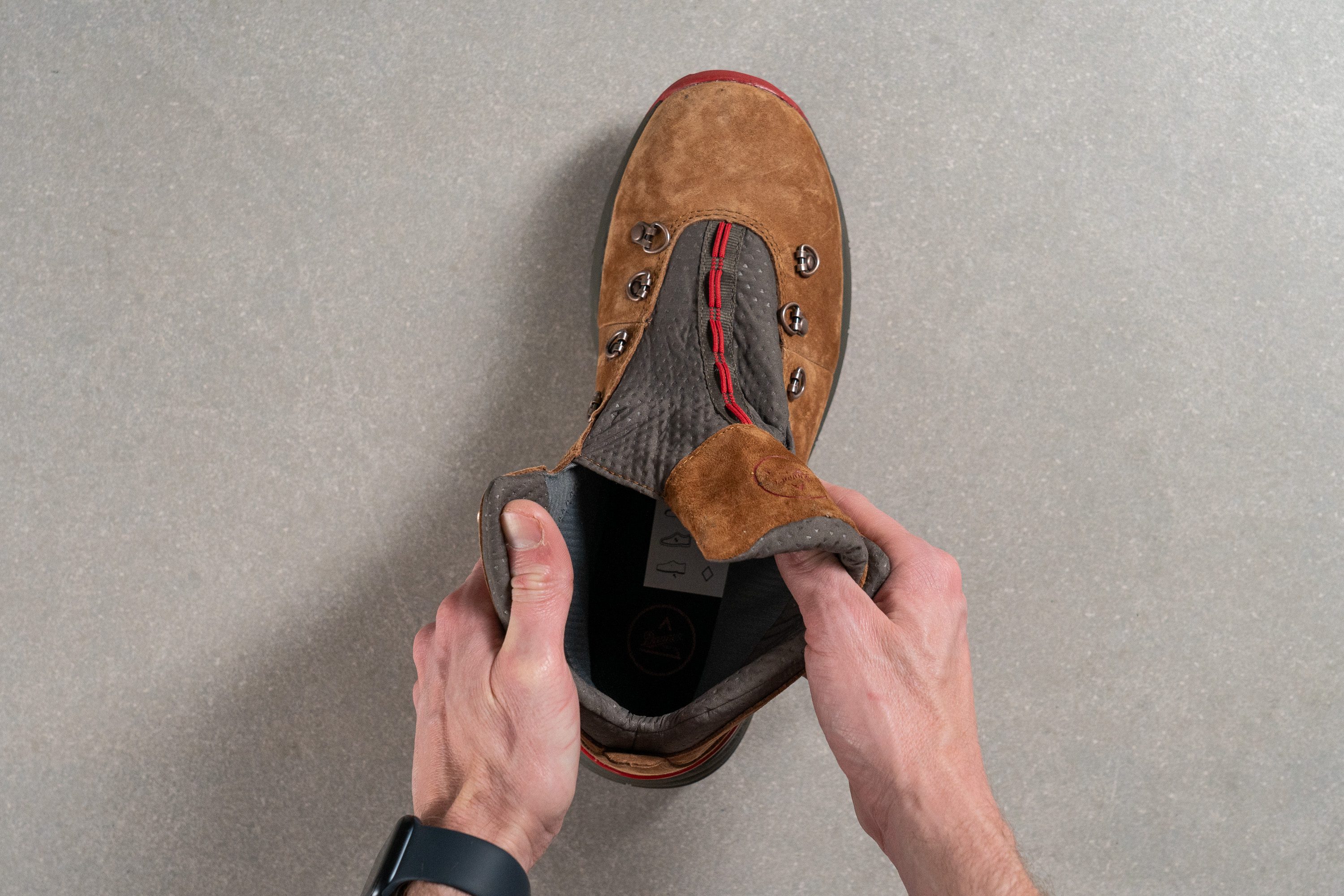
| Mountain 600 | Both sides (full) |
Heel tab
The Mountain 600 has a low-profile pull-tab at the heel that's easy to miss but makes sliding the boot on a little smoother.
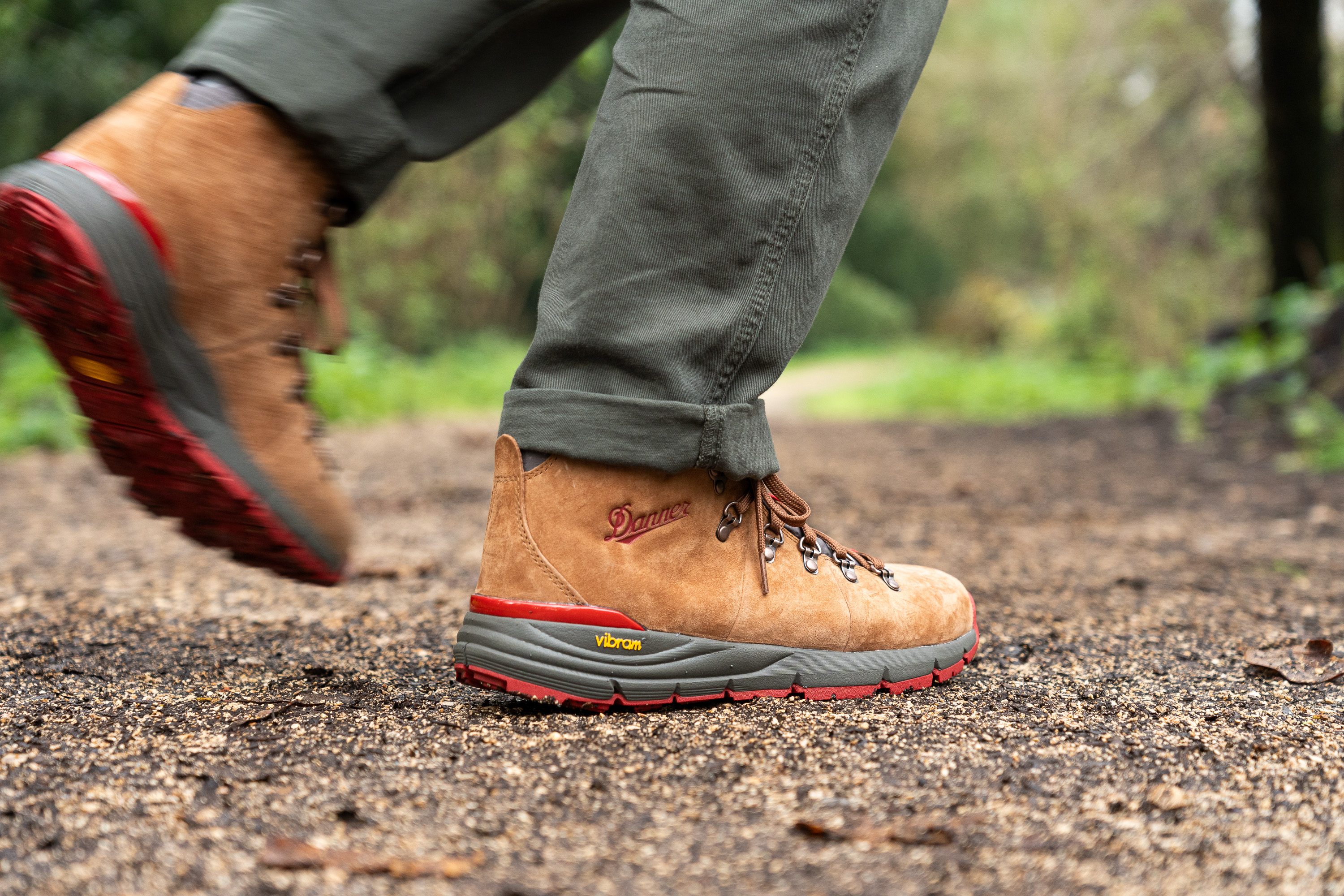
| Mountain 600 | Pull tab |
